
DUKE UNIVERSITY HEALTH CHARTS THREE HOSPITALS IN TOP 10 OF ANNUAL BNC RANKINGS COOPER’S RECORD ON BUSINESS | HIGH POINT’S SIMPLE HOUSING SOLUTION | UMSTEAD STATE PARK’S ROCKY CONTROVERSY

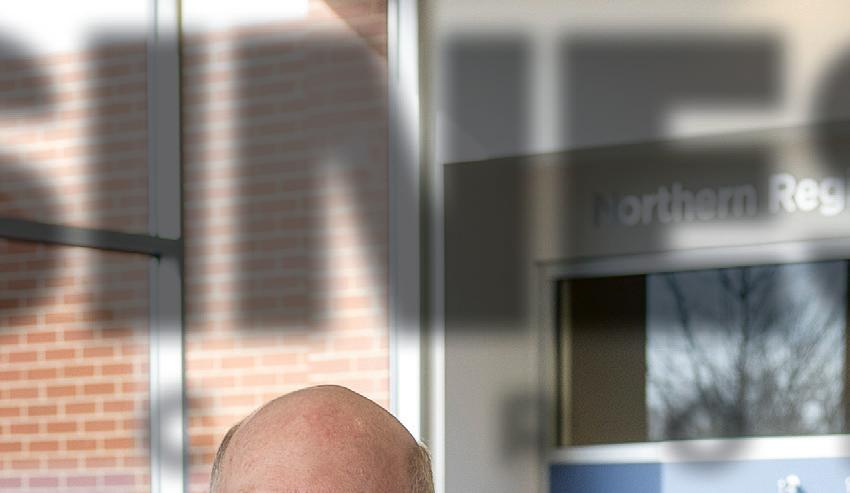

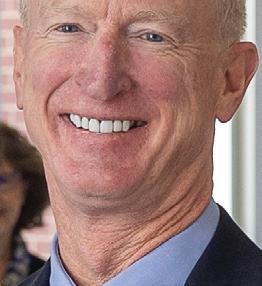


DUKE UNIVERSITY HEALTH CHARTS THREE HOSPITALS IN TOP 10 OF ANNUAL BNC RANKINGS COOPER’S RECORD ON BUSINESS | HIGH POINT’S SIMPLE HOUSING SOLUTION | UMSTEAD STATE PARK’S ROCKY CONTROVERSY





Bucking industry consolidation trends, Mount Airy’s Northern Regional Hospital and CEO Chris Lumsden stay focused on their region.



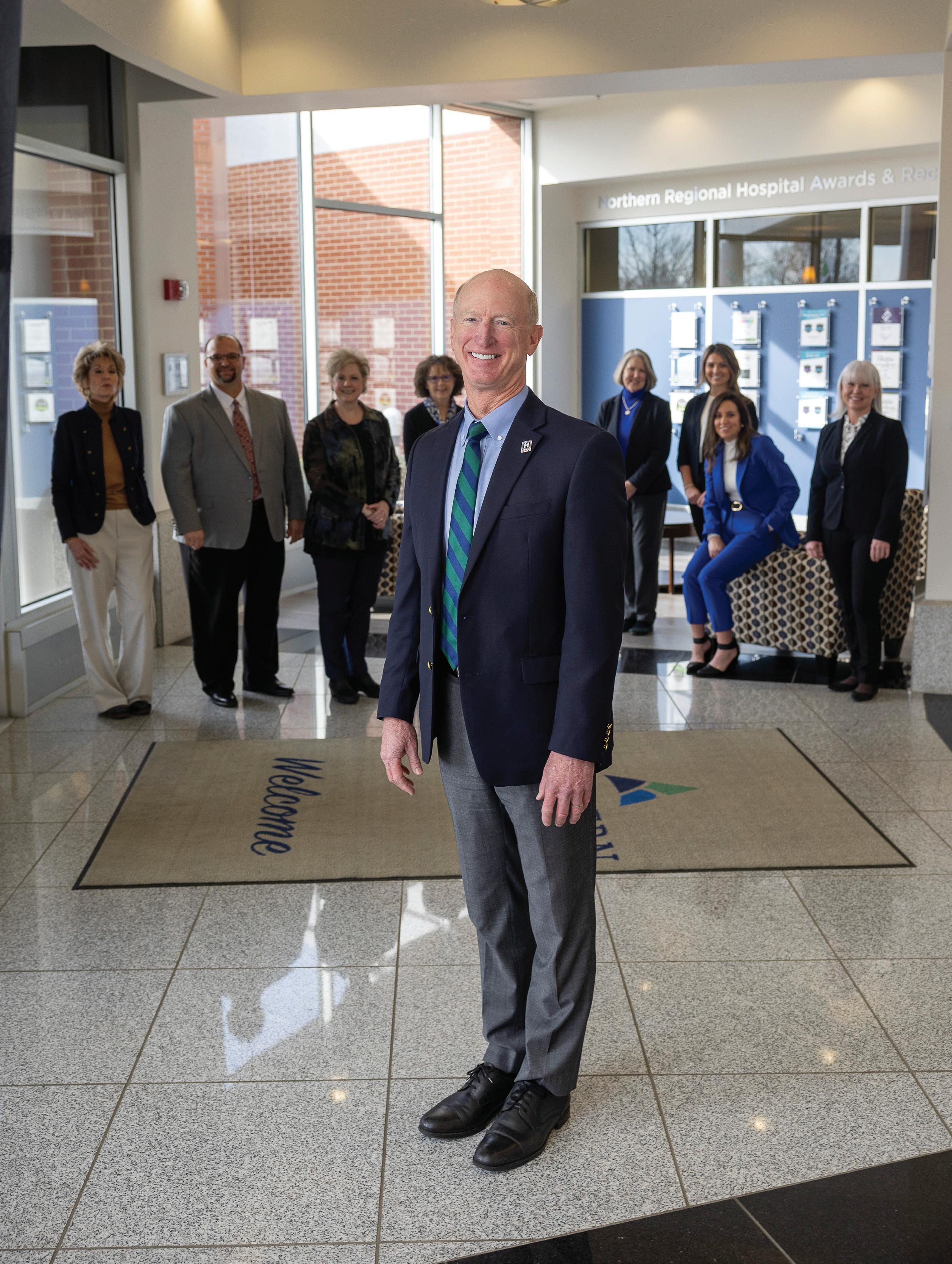

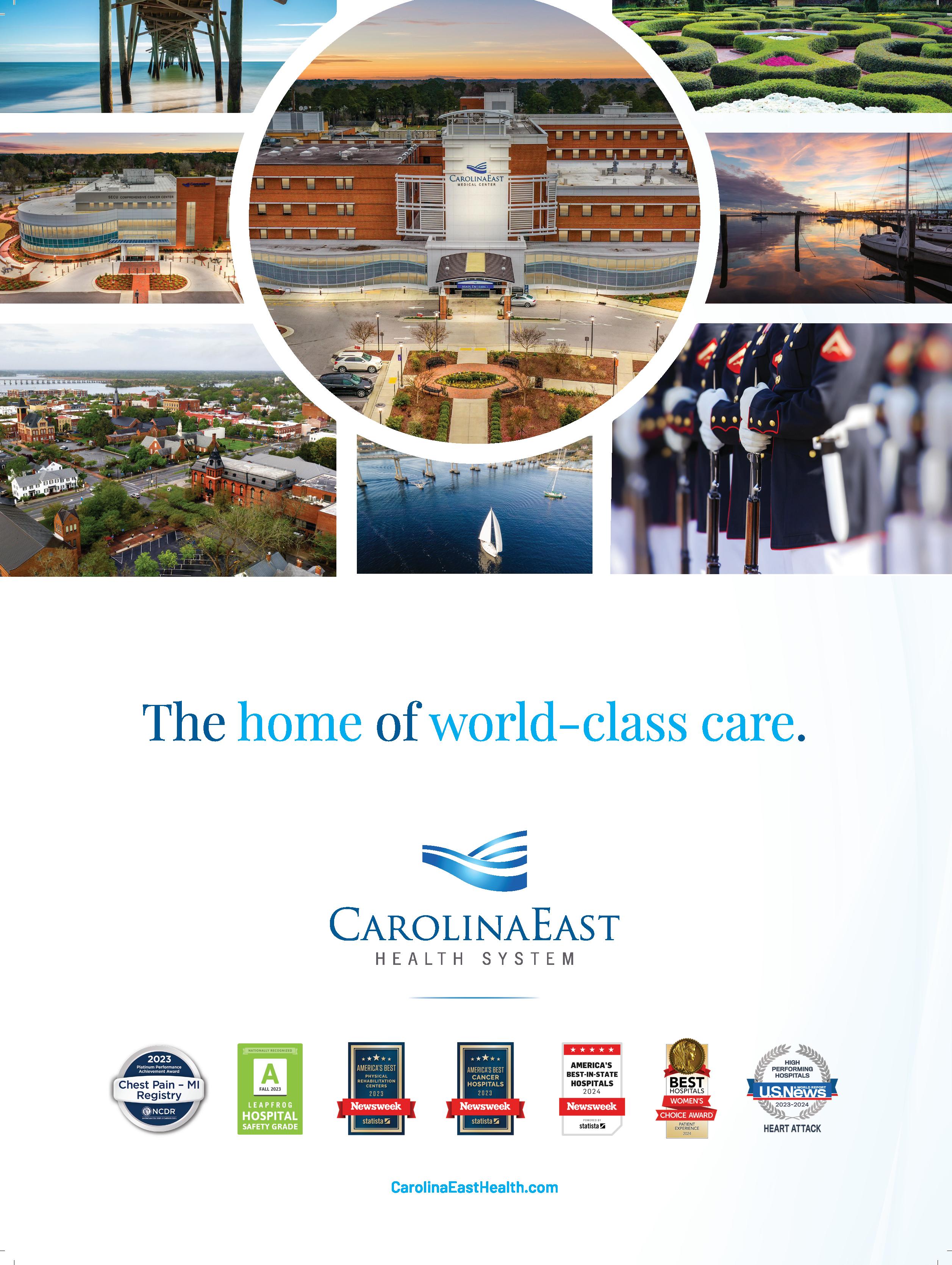
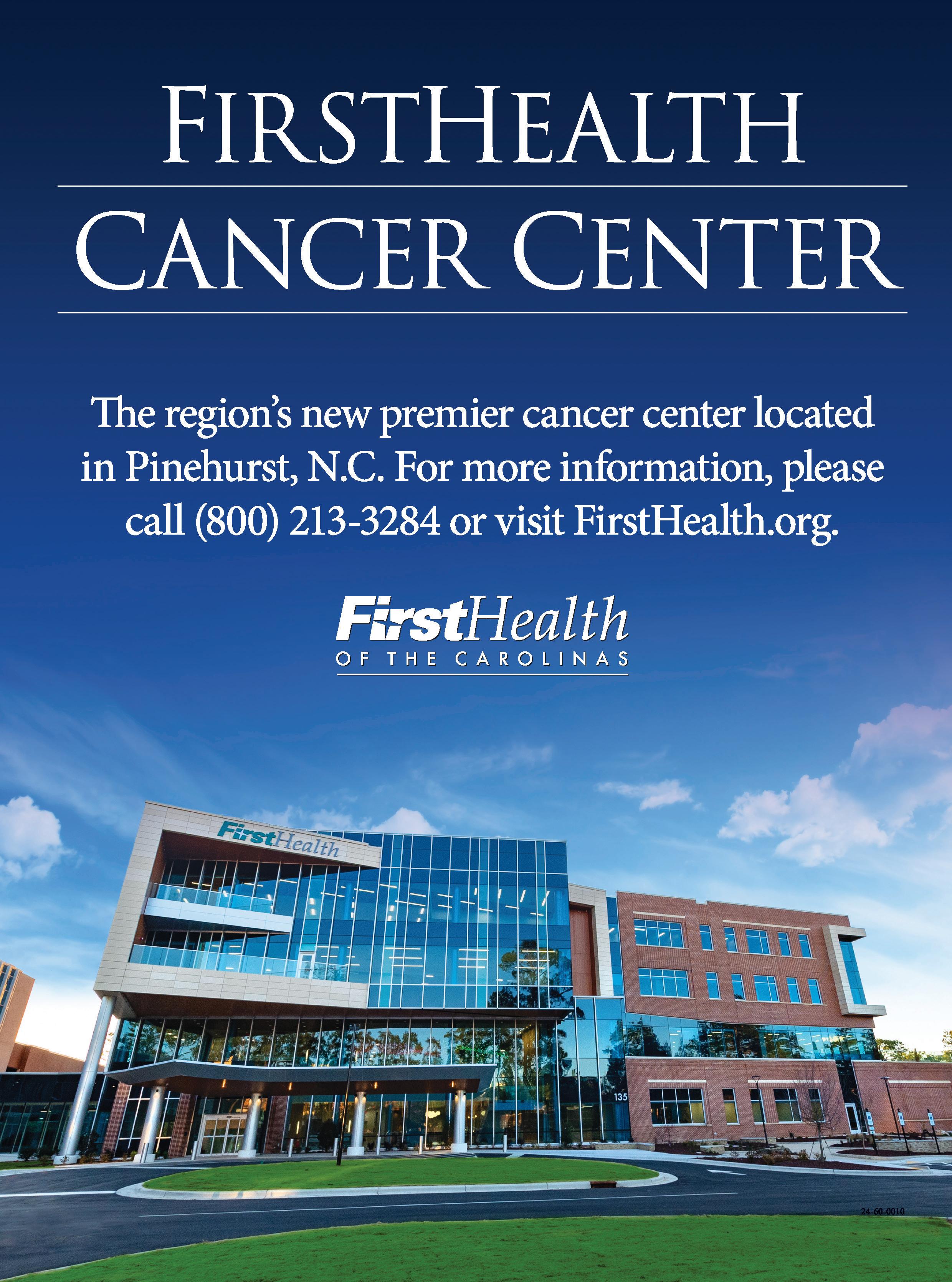
6 POWER LIST
Piedmont Capital Partners founder Bobby Long is on a mission to invest in companies that help make the world a better place.
Rocky path for quarry near Umstead State Park; High Point’s home-cooked housing plan; Slower EV demand causes two N.C. lithium companies to tap brakes; Personal experience fuels a counseling business’ growth.
78 PROJECT PLANS
North Carolina puts $10 million into helping seven low-wealth counties jumpstart development with fresh speculative buildings.















































The N.C. Community College System has a new game plan to train the state’s workforce.
60
Leisure travel has bounced back across North Carolina in big ways, all across the state.
66 FARMING
Agritourism is helping farmers turn a profit while connecting them to their communities.



























Mount Airy’s Northern Regional Hospital is among the state’s few community-led, independent hospitals, and it helps prove that size isn’t everything.
BY EDWARD MARTIN











Duke University Hospital tops BNC’s annual rankings, followed by last year’s leader Cone Health Moses Cone Hospital.
BY KEVIN ELLIS AND DAVID MILDENBERG


Gov. Roy Cooper discusses his wins and losses as the veteran elected official nears the end of his second term.
BY CHRIS ROUSH





Ranking hospitals is a worthy pursuit that has its limitations.
For many years, Business North Carolina has published a list of the state’s top hospitals, with the main purpose of celebrating the highest achievers. There’s no subjectivity to the rankings, which is strongly weighted by data from the Centers for Medicare and Medicaid Services. It's the biggest payer of medical bills and has the most incentive to understand hospital performance related to patient safety and outcomes.
Our rankings have shown a few hospitals that consistently outperform, including Duke University, Cone Health Moses Cone, UNC and UNC Rex. Those four ranked in our top five again this year.
The survey resonated more than ever for me after I spent considerable time in a Charlotte hospital and a rehab clinic following an October accident that ended with a couple broken ankles.
When it happened, my only hope was to travel to the nearest place offering pain relief, even if it was the world’s worst hospital. That’s what I mean by the limitations of rankings. I’m doing fine now.
My hospital experience, which involved Atrium Health, Novant Health and OrthoCarolina, left me supremely impressed by healthcare workers. My interactions with dozens of people, from room cleaners to veteran surgeons, were universally positive.
North Carolina is blessed by its plethora of strong hospitals that put patients’ interests first. Maintaining that tradition, given the industry’s consolidation trend, is an important subject to track.
Not everyone has similar positive hospital encounters. Among the state’s big healthcare stories is questions over the care provided at Asheville’s Mission Hospital. Some community and government leaders are pressing publicly traded HCA Healthcare to sell the hospital, which was a not-for-profit local authority before 2019. HCA says it’s doing solid work in Asheville.
Mission faces unusual scrutiny because it has a unionized nursing workforce, along with a local publication, the Asheville Watchdog, which has made the hospital a priority coverage topic. Before its sale to HCA, Mission


regularly ranked near the top in BNC surveys. It slipped in recent years but improved to sixth this year, up from 12th in 2023. Balancing statistical results and anecdotal experiences is challenging.
Our ranking doesn’t factor cost and affordability, which are key issues with healthcare accounting for 17% of U.S. gross domestic spending. Various surveys show different results about how North Carolina’s healthcare costs rank nationally, reflecting the opacity of pricing and insurance.
What is clear is that hospitals are dominant economic forces and the source of enormous civic pride for many communities, as Ed Martin’s cover story explains. Lots of great folks show up every day to care for us, I can attest.
Business North Carolina staffers have had a blast producing monthly magazines since 1981, supported by supportive subscribers and advertising sponsors. That tradition will continue for a long time.
Simultaneously, my colleagues Chris Roush, Kevin Ellis, Ray Gronberg and Dan Barkin are producing an unprecedented amount of business news coverage at our Businessnc.com website. One won’t understand what’s happening in North Carolina commerce without reading their work, I can say with confidence.
Most of the content is free, including our Daily Digest newsletter. But with plans to be around for many more decades, we’re also offering paid products that offer expanded coverage, including the North Carolina Tribune, which features Gronberg’s daily coverage of key political issues affecting the business community.
Last month, we debuted Daily Digest Extra, with more business news delivered on Tuesday and Thursday afternoons in a concise fashion.
We hope you will find great value in these digital, local news publications.

Contact David Mildenberg at dmildenberg@businessnc.com.

VOLUME 44, NO. 3
PUBLISHER
Ben Kinney bkinney@businessnc.com
EDITOR
David Mildenberg dmildenberg@businessnc.com
MANAGING EDITOR
Kevin Ellis kellis@businessnc.com
EXECUTIVE EDITOR, DIGITAL Chris Roush croush@businessnc.com
ASSOCIATE EDITORS
Ray Gronberg rgronberg@businessnc.com
Cathy Martin cmartin@businessnc.com
SENIOR CONTRIBUTING EDITOR
Edward Martin emartin@businessnc.com
CONTRIBUTING WRITERS
Vanessa Infanzon, Tucker Mitchell
CREATIVE DIRECTOR
Cathy Swaney cswaney@businessnc.com
GRAPHIC DESIGNER Pam Fernadez
CONTRIBUTING GRAPHIC DESIGN
Ralph Voltz
CONTRIBUTING PHOTOGRAPHER Bryan Regan, Bert VanderVeen
MARKETING COORDINATOR Jennifer Ware jware@businessnc.com
ADVERTISING SALES
ACCOUNT DIRECTOR
Melanie Weaver Lynch, eastern N.C. 919-855-9380 mweaver@businessnc.com
ACCOUNT MANAGER AND AUDIENCE DEVELOPMENT SPECIALIST Scott Leonard, western N.C. 704-996-6426 sleonard@businessnc.com
CIRCULATION: 818-286-3106
EDITORIAL: 704-523-6987
REPRINTS: circulation@businessnc.com
BUSINESSNC.COM
OWNERS
Jack Andrews, Frank Daniels III, David Woronoff, in memoriam Frank Daniels Jr.
PUBLISHED BY Old North State Magazines LLC
PRESIDENT David Woronoff






Piedmont Triad Partnership Co-Chair Bobby Long joined High Point University President Nido Qubein in the Power List interview, a partnership for discussions with some of the state’s most influential leaders. Business North Carolina’s annual Power List publication spotlights the state’s powerbrokers.


Bobby Long is a partner in the merchant banking firm Piedmont Capital Partners, which he began after selling his insurance company in 2002 at age 46. Piedmont Capital invests in companies resulting from technology innovations from academia, and its portfolio includes 3D printing, energy, healthcare and software. He is co-chair of the Piedmont Triad Partnership, which markets the 12-county region. As chair of the Piedmont Triad Charitable Foundation, Long is credited with rebuilding the Wyndham Championship golf tournament in Greensboro. He serves on the boards of the Joseph M. Bryan Foundation, Carbon, and First Tee Board of Governors. He is also a trustee at Elon University. Long graduated from N.C. State University in 1977 with a double major in business administration and economics.
T his story includes excerpts from Long’s interview and was edited for clarity.
What led to your success in the insurance business after graduating from N.C. State University?
I quickly realized that insurance was a case of nite demand and almost in nite supply, so I tried to create a market that was the reverse of those two. We jumped right into the corporate-owned life insurance arena.
Right out of the box, when I was 22, I started cold calling Fortune 500 companies in places like New York City, trying to get leads however I could. I just didn’t know any better. I was like, why not? I’d go straight to the CEO.
Not many would take my calls, but some would. I’d then try to get somebody to go with me that knew what they were doing. I would learn from them until I could do it myself.
What happened with your insurance business?
We sold it to Clark Consulting and ultimately Transamerica. at was in 2002, and I was 46 at the time. I remember thinking what in the world was I going to do next? It took some time, but I thought about what made me tick beyond trying to make ends meet and do well.
Ultimately, it made me much more mission-based. I thought if I could make as much money as possible and give it away, be charitable, I could make my work stu mission-based, too. We live in a capitalist system, so you have to have a good business plan. In order for it to succeed, it has to make money, but simultaneously, it would be of greater bene t if it solves some of life’s problems.
What would you tell someone who is getting ready to start a business?
Have huge courage. Don’t be scared. For younger people, know that older people want to help. I remember at age 30 the CEO of Xerox calling and asking me to visit. I’m terri ed, wondering what did I do wrong. He said, ‘I remember when I was your age, and it took an awful lot for you and your partners to get this account, and I want to make it easier for you because I think you’ve done a fabulous job!’ He introduced us to his buddies that were CEOs.
And then he said, ‘Do you want to come down to Vero Beach, Florida, this weekend and play with the CEO of AT&T and one of my other friends?’ And I said, “Absolutely!” And we got AT&T pretty much that weekend.
And I said I’m going to try to do the same for people if I’m ever in a position to help them in the same way.
You helped start Piedmont Capital Partners. Explain what that company does.
We invest in technology companies coming out of academia at the earliest stage possible to try to change the world. For example, both my parents died of Alzheimer’s. We found a scientist who had just stepped down as the chief of the Neurology Department at Stanford University. He has come out with a pill that the data for is spectacular. We work with him, have dinner with him every three weeks, and have since 2014, and we’re starting the final trial now.
That’s a risky business, is it not?
Anything that has truly changed the world is singular and it’s got to have huge risk. I’m prepared for that. We typically take a 15%, maybe 20%, position in the company right out of the gate. Then you raise capital around it, and you keep going.
Some days it’s dark days, and some days it’s good days, and you just find the will and you meet with the people, and you hold their hands.
What led you to start Piedmont Capital?
We started in 2013. Between 2002 and 2013 I did a lot of different economic development things. In 2013, I said OK, I’m going to start companies. I formed a partnership with Louise Brady (former vice president of investments with Wells Fargo Advisors).
Typically in private equity, you’re taking over a business that already has revenue. As a merchant banking firm we’re creating it from scratch, just out of technology. It typically takes 12 to 13 years for that to happen. We still have, let’s say, 25 of them going. It’s pretty good, but it’s not for the faint of heart.
For example, our battery company is about next-generation batteries trying to solve the world’s energy problem. Everybody in the world is trying to do that. And we think we’ve got it. We get very involved. It’s not a passive investment. We have not gone a day where we didn’t talk with our battery company, seven days a week, for 10 years.
In 2007, Greensboro almost lost its PGA event. As chair of Piedmont Triad Charitable Foundation, you helped convince Wyndham to sponsor the tournament and keep it in Greensboro. Take us behind the scenes.
This was like a lot of the business stuff I’m doing. You find a great leader who really believes in what they’re doing, and then you back them. The tournament had fallen on hard times. Foundation CEO Mark Brazil (tournament director at the time) said he could make
the tournament work, but he didn’t have the necessary money.
We got people involved and said, ‘If we can cooperate like this, and make this tournament successful, then we can work on everything in the region together and make it successful.’
Luckily, we all backed Mark. That’s what we try to do in our business. I probably went 15 years talking with Mark seven days a week.
What makes a PGA golf tournament successful?
It’s like how you have built High Point, and not just the university, but the town. It’s not a straight line. There’s a lot of nuances and you try to make the best decisions on each one.
What’s your secret to engaging others in your missions?
I’ve been lucky to come in contact with a lot of nice people that are doing great things. I’m curious about what makes them tick and how I can be helpful to them. And then, lo and behold, they end up wanting to help me, too. It all starts out with how I can help them.
My parents taught me this lesson. Both were very welcoming, very inclusive, giving others the benefit of the doubt. I’m fascinated about what makes people tick. And then I want to be helpful if I can.
Your work with the Piedmont Triad Partnership has helped bring large companies to the region. What excites you about this region?
We’ve got so many great universities, like your own, around. Fifteen years ago, 75% of innovation came out of corporate America. Now it’s coming out of the universities. If that’s not stimulating, I don’t know what is. We also have access to talent, the positivity of a “can do” attitude.
What inspires you about our state’s future?
I like to win, and I like to succeed. North Carolina is my home, so I want North Carolina to win. We have “great everything.” Other places will say the same, but when you put it all together – our universities, our way of life, nice people, the whole bit – there’s no reason we can’t do better than everybody else.
A few years ago, I asked a guy in Palo Alto, California, about the difference between that area and North Carolina. And he said, “First, the science in North Carolina is equal to the Bay Area and Boston. What we have is a whole lot of money. If North Carolina can get the proper funding, it will explode.”
We have so many great ideas and what we need to do is grow them through relationships and nuances and looking for opportunities. Getting to the right people at the right time and being crafty about what our message is and putting the pieces together.
What is it that you really still look forward to doing?
I want to continue to be mission-based and continue to try to help wherever I can, and continue to learn. That’s my gig. North Carolina’s a great place to do that. ■

This is the thirtieth in a series of informative monthly articles for North Carolina businesses from PNC in collaboration with BUSINESS NORTH CAROLINA magazine.
Following a year when North Carolinians saw access to healthcare expand and regional M&A activity in the healthcare space tick upward, there is little question that 2024 will bring continued transformation to this inherently dynamic sector. And while labor pressures and rising costs continue to put a strain on providers’ operating margins, continued innovation and opportunities for strategic growth can be expected to help propel the state’s health systems and hospitals forward, says Charlotte-based Parker Marsh, senior vice president and senior relationship manager for PNC Healthcare.
“When we look at the landscape holistically, North Carolina is home to a robust network of health systems and hospitals, which supports the physical health of North Carolinians and contributes to the economic health of our communities and state more broadly,” says Marsh. “The industry continues to see new entrants challenge established business models, including non-traditional players entering the ecosystem, while healthcare professionals continue to search for new ways to improve the impact and efficiency of care.”
Trends shaping the evolution of corporate healthcare, says Marsh, include recent changes to state legislation, continued M&A activity, the adoption of AI-enabled technology to drive cost savings, payment and patient financing innovations and strategic efforts to manage profitability against the backdrop of workforce shortages, rising labor costs and a high interest rate environment.
As a result of the passage of House Bill 76, the legislation that expanded eligibility for Medicaid coverage to an additional 600,000+ North Carolinians in 2023, eligible hospitals in the state will receive payments through the Healthcare Access and Stabilization Program (HASP) – funding that will be critical for healthcare providers that are working through financial turnarounds of their organizations and planning strategic capital projects. Additional developments per House Bill 76 have included several Certificate of Need (CON) changes, which will be phased in over several years. Among the most significant changes is the impending exemption of “qualified urban ambulatory surgical facilities” from CON review. This exemption may encourage new
players to enter urban markets, which could drive competition for surgical procedures that historically have been provided by established providers.
In addition to these legislative changes, North Carolina’s population influx is creating its own set of growth opportunities.
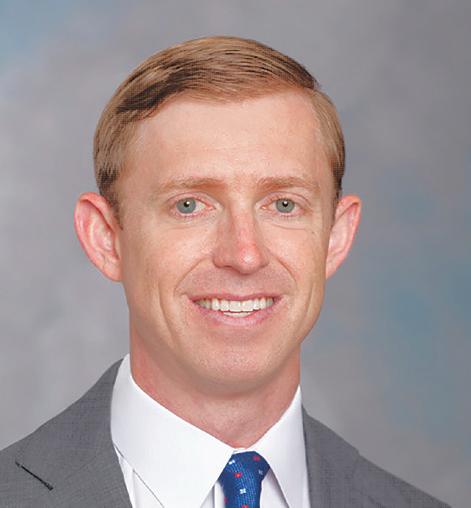
Parker Marsh
“Healthcare providers in our state are benefiting from population growth and the larger patient base that accompanies that growth, which can lead to increased revenue and opportunities,” says Marsh.
“Additionally, population growth can attract more healthcare professionals to the state, improving access to care and the quality of services provided.”
Despite increased scrutiny of M&A transactions among healthcare organizations, consolidation is likely to continue in 2024 as hospitals and health systems look to gain efficiencies and pursue value-based care.
This proclivity is particularly evident in the acute care subsector, says Marsh, as increased wages and nurse-to-patient ratios may drive acute care entities to seek partners or larger providers in order to drive economies of scale in other areas of the business.
The adoption of AI-enabled technologies is prone to intensify as healthcare organizations continue to explore where AI can most effectively be deployed, both in clinical care and in costsaving exercises. Business partners of hospitals and healthcare systems, in turn, are investing in platforms to automate and improve administrative functions, while also capturing value.
“One common pain point we often hear about from health system executives is the challenge of successfully submitting insurance claims, and how this leads to lost revenue, extended



timelines for receiving payment and the diversion of critical resources,” says Marsh. “As a banking provider to hospitals and health systems, PNC evaluated how to leverage our in-house technology and innovation to deliver a solution to this efficiency drain.”
As a result, PNC developed PNC Claim Predictor, an AI- and machine learning-enabled solution that helps healthcare organizations to proactively identify inaccurate or insufficiently populated insurance claims prior to submission, resulting in time and expense savings and a reduction in lost revenue.
Just as providers have continued to deliver increasingly more options for accessing healthcare, they have steadily introduced additional patient financing and payment options, in collaboration with ecosystem partners and technology, to help consumers manage out-of-pocket healthcare costs.
For example, PNC Healthcare teams up with Charlottebased AccessOne, a leading healthcare fintech company, to help healthcare providers develop customized payment plans for patients, resulting in more repayment tools and flexibility for consumers and more funding options for providers.

With cost structures remaining high and labor challenges persisting, hospitals and health systems will continue to face challenges in managing profitability.
The dilemma that many providers are facing is how to staff and run their existing entities profitably, while continuing to reinvest in their infrastructure to service the increased demand of patients. And due to the high interest rate environment, among other factors, many health systems have taken a wait-and-see approach to borrowing for new capital projects. “Because providers can’t put off these strategic priorities forever, we anticipate seeing the commencement of more capital projects in the next 12-24 months or sooner,” says Marsh.
Despite the challenges in today’s environment, Marsh is optimistic about the future for North Carolina’s healthcare industry in growing its reach, pace of innovation and pipeline of capital projects. “During the past year or so, many hospitals and health systems have taken a disciplined approach to cost reduction and driving operational efficiencies, while also planning for capital projects that will help fuel the continued success of a sector that contributes to North Carolina’s physical and economic health in so many ways,” he says.
For more information, please contact your PNC Relationship
Weston Andress, Western Carolinas: (704) 643-5581
Jim Hansen, Eastern Carolinas: (919) 835-0135
These materials are furnished for the use of PNC Bank and its clients and do not constitute the provision of investment, legal, or tax advice to any person. They are not prepared with respect to the specific investment objectives, financial situation, or particular needs of any person. Use of these materials is dependent upon the judgment and analysis applied by duly authorized investment personnel who consider a client’s individual account circumstances. Persons reading these materials should consult with their PNC account representative regarding the appropriateness of investing in any securities or adopting any investment strategies discussed or recommended herein and should understand that statements regarding future prospects may not be realized. The information contained herein was obtained from sources deemed reliable. Such information is not guaranteed as to its accuracy, timeliness, or completeness by PNC. The information contained and the opinions expressed herein are subject to change without notice. Past performance is no guarantee of future results. Neither the information presented nor any opinion expressed herein constitutes an offer to buy or sell, nor a recommendation to buy or sell, any security or financial instrument. Accounts managed by PNC and its affiliates may take positions from time to time in securities recommended and followed by PNC affiliates. Securities are not bank deposits, nor are they backed or guaranteed by PNC or any of its affiliates, and are not issued by, insured by, guaranteed by, or obligations of the FDIC or the Federal Reserve Board. Securities involve
“PNC” is a registered mark of The PNC Financial Services Group, Inc.
©2024 The PNC Financial Services Group, Inc. All rights reserved.




The Bratton family’s quarry plans are proceeding after years of contention by state park advocates.
By David Mildenberg

Since 1982, Raleigh’s Wake Stone Corp. has pulled 55 million tons of rock from its quarry adjacent to Umstead State Park and near Raleigh Durham International Airport in western Wake County. Over those four decades, the park’s visitor count has tripled to an estimated 2 million, while the airport has had dramatic growth as the Triangle metro area’s population soared to more than 2.2 million.


Quarries don’t last forever. So in 2016, Wake Stone started planning a similar operation on a nearby, 105-acre plot owned by RDU. It signed a lease with the airport authority in 2019, and the new quarry is expected to start producing aggregates for road construction and other purposes in about two or three years, Wake Stone President Sam Bratton says. Site development will likely start this summer, and the company expects to extract about 35 million tons of rock over the next 25 or 30 years.
That’s the basic story of a fairly routine business expansion. Except this one ignited a protracted outcry by environmentalists and park enthusiasts, who’ve worked to block the new quarry over the past seven years. Their advocacy led state regulators to initially deny Wake Stone’s permit in 2022. Opponents have received support from N.C. politicians, including Gov. Roy Cooper, who last fall criticized the project, citing his support for “protecting public land and water resources.”
Attorney General Josh Stein, the likely Democratic nominee for governor in November, has also spoken against Wake Stone’s plan.
The lengthy controversy cost Wake Stone more than $1 million in what Bratton terms an “abuse of the legal system.” He says that view was vindicated last year when Administrative Law Judge Donald van der Vaart ordered the state to grant the mining permit and to pay Wake Stone $500,000 to cover its legal fees. The judge concluded that the state’s initial denial was based on







faulty math and improper criteria.

In a settlement disclosed last November, the N.C. Department of Environmental Quality agreed to abandon its opposition to Wake Stone’s permit. That means the Attorney General’s office, led by Stein, no longer opposes the effort.
“The last thing we want to do is damage Umstead Park,” Bratton says. “We’ve been operating adjacent to the park for 42 years, and now we’re going to be a problem?” Sound studies show that noise from Interstate 40 traffic and RDU jets are much more significant for park visitors than Wake Stone’s quarry, he says. “Not liking mining is not a legal criteria,” he adds, noting that RDU’s master plan approved in 2016 changed the tract’s land-use to “industrial/quarry.”
While Wake Stone is confident about its project schedule, opponent Jean Spooner says the controversy “is nowhere close to being done.” A longtime extension professor at N.C. State University, where she earned a doctorate in soil science, she leads the Umstead Coalition nonprofit, which has organized opposition to the quarry expansion.
The coalition wants a judge to rule that Wake Stone’s existing quarry should close in 2031, which is 50 years after its initial permit award. It also seeks a ruling that would force Wake Stone to expand buffer areas around the new quarry. Wake Stone rejects those objections and doesn’t expect them to slow its project, though Spooner pledges that the coalition will appeal adverse rulings.


Wake Stone’s expansion could not have happened without its lease with RDU, which is run by an authority made up of members appointed by Raleigh, Durham and Wake and Durham counties. Local business leaders have traditionally comprised the board, but the increasingly progressive tilt of Triangle elected officials has changed its makeup to include members more aligned with environmental groups.
The current board “probably wouldn’t vote to approve the lease,” Bratton says. But the contract has been in force for two years and “gives the RDU authority little chance to change the lease,” Spooner says.
The coalition remains disappointed with the airport board’s decision, particularly because the nonprofit offered $6.4 million to take control of the land, Spooner says. “We offered several paths forward that had more money and were better for the public,” she says. It also supported an effort that has sparked 11,000 public comments opposing the airport’s plan.
The Umstead Coalition had revenue of $207,000 in 2019 and $178,000 in 2020, mostly from membership fees and contributions, according to its 2020 tax filing, the last one that has been made public.
Bratton notes that the Federal Aviation Authority prohibits RDU from selling the property and that Wake Stone’s offer was the most lucrative option for the airport, with a potential for as much as $24 million in royalties.
The CEO defines Wake Stone as an entrepreneurial family business. “My dad (John Bratton) started it in 1970 when I was 6 years old, my brother Ted was 15, and brother Johnny was 23 or 24,” he says. “His vision was to get one operation going that would help him pay to educate his kids.”
The company now has a third generation coming along to continue traditions, including never laying off any workers. “The idea of selling to a company that will do a lot of cost cutting and things that aren’t paternalistic is not something we are interested in,” Bratton adds.
Wake Stone operates four quarries in North Carolina and one in South Carolina. The company employs about 200 workers.
Raleigh is also the headquarters of Martin Marietta Materials, a publicly traded aggregates producer with a market value of $33 billion. John Bratton worked for Martin Marietta for 25 years before starting Wake Stone.
The Brattons have been politically active. Sam is a registered independent who has been on the N.C. Mining Commission since 2015 and is now vice chair. His brothers are former commission members.
“I believe in government regulation to stop industry from polluting and to keep industry safe,” he says.
But he also says growth requires continued investment by aggregates companies, especially in fast-growing regions like the Triangle. Crushed stone makes up about 90% of asphalt used in highways, he adds. “The equipment we use and the development of quarries is very expensive and takes a long-term investment to get a return. You can’t be there for just five or 10 years.”
The many fans of 5,600-acre Umstead Park, which the state opened in 1937, hope that the historic blending of mining and recreation can work effectively for generations to come. ■
John Bratton Jr. Founder, Wake Stone Corp.

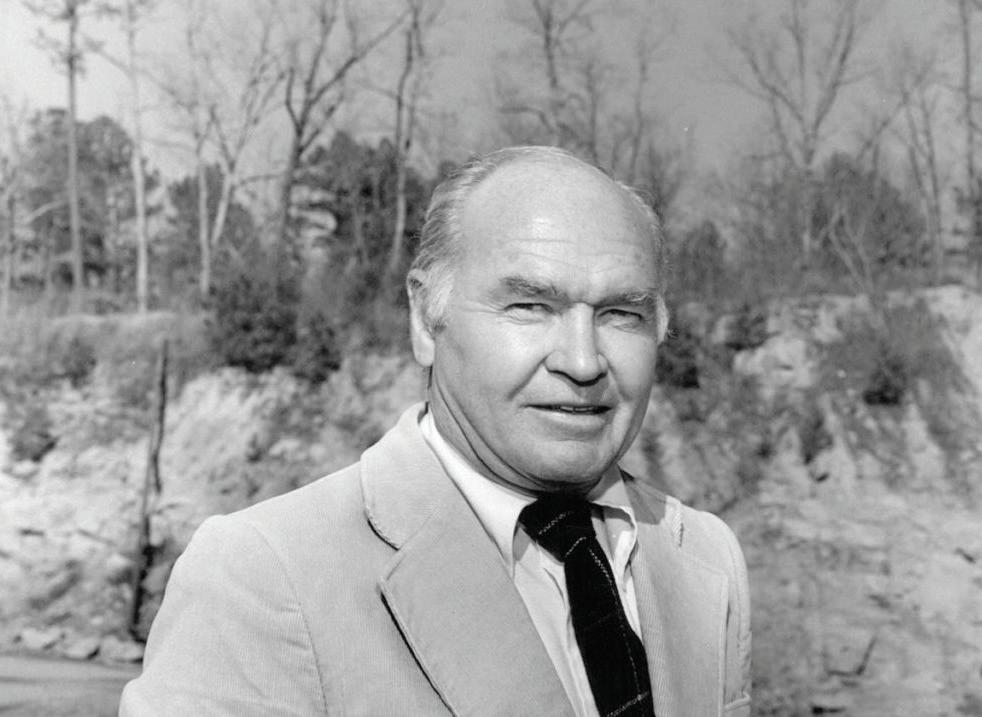


Pinnacle attacks affordable housing in High Point. Can other cities follow?

By Tucker Mitchell
Looking around her neat-and-trim home in a modest east High Point neighborhood, Deborah McBee beams with pride and shakes her head in disbelief.
“It’s just hard to believe that it’s me, here, in a house of my very own,” she says.
McBee, 60, fought her way out of decades of drug addiction and poverty to start a new life that included work as a home health provider and first-time home owner at age 57. Perseverance, a strong faith, and a good husband helped make her dreams come true, she says.
As for homeownership, she credits a housing revitalization program operated by Pinnacle Financial Partners for making a big difference.
For almost a decade, Pinnacle and its precursor institution, Bank of North Carolina, have been building starter homes on lots in inner-city High Point. The bank then sells the lots and houses to eager buyers at cost, or close to it.
Homeowners like McBee get a nice place to live and a chance to build personal wealth through home equity.
Thanks to the strong Triad housing market, some participants in the program have seen their equity stakes double in a few years. The program’s initial home sold for $97,500 in 2018. It was recently appraised at $176,900. Down payment assistance comes from various state and federal programs, and the bank itself, which allows for as much as $7,500 for qualified homeowners. Some participants have qualified for as much as $60,000 in overall assistance.



That is typically structured as a second note that doesn’t require payments until the primary loan is paid off. In some cases, the assistance payments are forgiven if the homeowner retains ownership for a stipulated period.
Three years ago, McBee purchased her 1,200-square- foot home for $103,000. Thanks to more than $25,000 in assistance, she already has substantial equity. The scarcity of quality homes in that price range means it should get a premium if sold, but McBee is staying put.
“I never thought I’d be in this situation, but now that I’m here I’m never leaving,” she says. “Thank goodness for the people of Pinnacle. This is such a good deal.”
Helping homeowners build equity is the plan’s purpose, not fast money, says Rick Callicutt, the former CEO of BNC and Pinnacle’s chair for North Carolina and Virginia. In 2017, Nashville, Tennessee-based Pinnacle paid $1.9 billion for BNC, which has 45 offices in the state. Since then, Pinnacle has more than doubled in size to $48 billion in assets.










“The only way most people ever really get ahead, put some money away, is through the equity in their home,” he says. “If we can put some people in homes that they own, where they can get ahead, then they’re better, the neighborhood is stronger and the whole city stronger. That’s our goal in all this.”
Callicutt launched the program shortly after BNC purchased High Point Bank and Trust for about $141 million in 2015. The High Point native recalls discussing how to improve inner-city neighborhoods with BNC’s community development officer, Kim Graham.

“We need to figure out how to stabilize some of these neighborhoods, not with tenants but with owners,” he told Graham, also a local native who now works for Pinnacle. “I grew up in High Point, went to High Point Central (high school) and High Point University,” Callicutt says. Some of these neighborhoods were places I used to go when I was young. They’d fallen off.”
Pinnacle CEO Terry Turner also saw the program’s value. The company supports affordable and attainable housing projects across its footprint in the Carolinas, Georgia, Tennessee and Virginia, although no other program operates like High Point’s.
The bank says that it has $1.7 billion committed to investments, lending and grants for low- to moderate-income housing. It spent $920 million on community development investments in 2022.
So far, Pinnacle has built and sold 43 homes in High Point. Another 10 lots were recently purchased, with several more in process. Pinnacle seeks to add 10 or more new homes a year.
“I wish they’d build 100. I could sell every one of them next week,” says Carolyn McKinley, a broker with Triad Lifestyle Realty, the selling agent for most of the Pinnacle properties.
Pinnacle has invested more than $6 million in the High Point program, although it operates as a revolving fund.
Pinnacle buys lots and pays contractors to build houses. When the house is sold, it recoups the direct outlay. Pinnacle provides mortgage funding, including some down payment assistance
lending, for about half the houses in the program. Buyers aren’t required to finance their home through Pinnacle.
“There’s no contingency, no requirement,” says Callicutt. “It’s not about us making money. It’s about investing in this community. These houses are needed and this is a good idea. The critical part, though, is that there needs to be somebody out there who can stroke a check and build six, seven, 10 houses at a time that won’t be sold for a profit. Really, not many people are in position to do that.”
Key program managers are consultants and contractors, led by Mark Walsh, an active local real estate executive who has been on the city’s planning and zoning board for more than two decades.
The program starts with Pinnacle purchasing lots from the city through a bidding program that is open to all comers. The bank’s ability to buy an entire block often gives it a leg up.
The city wins because it doesn’t have to hold real estate and through enhanced property taxes. Pinnacle’s new homes always increase the tax value of the formerly delinquent properties, many of which were unimproved or occupied by uninhabitable structures. A lot purchased last year on Salem Street, near High Point University, was turned into two building lots. The city’s tax levy increased from $409 per year, which it wasn’t collecting, to more than $1,800.
By clustering houses on the same street, in the same neighborhood, property values increase because neighbors are incentivized to improve what they have. New residents, with a real stake in the future, keep an eye out for bad actors and other neighborhood problems.
“We’re starting to see an impact across the city,” says Callicutt. “We have clustered the properties we buy, so it can really be transformative.”
Improved performance by the city’s code and inspection operation, and more diligent policing, is also helping, Callicutt says. Spiraling construction costs pressure the program, a familiar problem for all home builders. Pinnacle uses materials conducive to maintenance by a population that might not have lots of cash on hand. For instance, says Walsh, they typically use vinyl siding instead of Hardie board because the latter requires re-painting.
“With vinyl siding, you can update it by spraying it with a hose,” says Walsh.
Pinnacle’s Graham fields calls all the time from other cities looking to replicate the High Point program. So far, there are no copycats.
“This is unique with High Point where the city makes it so easy to get the end result, which is an affordable house,” says Graham. “I don’t know how we get there unless (other cities) act like the city of High Point. With other larger municipalities, you get into programs where federal dollars are involved. When you do that, it can get really complicated in a hurry.” ■



Slumping lithium prices and slowing EV demand forces tough decisions for industry powers.
By Chris Roush
Two North Carolina companies that want to take advantage of the increasing popularity of electric vehicles by mining lithium for their batteries are cutting back due to a dramatic drop in the metal’s price.
Belmont-based Piedmont Lithium laid o 16 workers, or about a quarter of its sta , earlier this year as part of an e ort to reduce expenses by $10 million anually. e company is working with a joint venture partner to improve productivity and cut costs at its lithium mine in Quebec. Piedmont Lithium also has a plant in Ghana where it hopes to receive permits by the end of this year, while it’s also exploring selling a 50% stake in the operation. Meanwhile, the company has deferred engineering expenses and other development costs at proposed mines in Tennessee and North Carolina. e potential mine in Gaston County, about 25 miles west of Charlotte, has drawn opposition from local residents and awaits approval from state o cials.
Charlotte-based Albemarle delayed investment on a $1.3 billion lithium hydroxide re ning plant in South Carolina that was expected to create more than 300 jobs and open in 2026. A $180 million research center in north Charlotte was also deferred inde nitely. e company has cut about 300 jobs and expects to reduce its annual costs by $95 million.
e company is focusing on reopening a closed mine near Kings Mountain, one of the few places in the U.S. with abundant hard-rock lithium deposits.
Piedmont Lithium reported a $23 million pro t in the third quarter, but its stock was trading in mid-February at about $15, well below its 52-week high of nearly $77. A er trading as high as $293 in the past year, Albemarle is now trading 60% lower at $115 per share. In mid-February, it reported a 10% fourth-quarter revenue decrease to $2.4 billion and a $617.7 million loss due to lower lithium
prices . It also said its lithium conversion facility in China was completed.
Decreased demand for EV cars and reports that the vehicles couldn’t access charging stations and lost battery power during cold weather have depressed lithium prices, says Hemali Rathnayake, a UNC Greensboro professor and co-founder of Minerva Lithium, which is developing mineral extraction processes. Lower gas prices also means consumers are less likely to switch to an EV.
“People kind of regretted buying an electric vehicle,” she notes. “But I see this as a bubble, and I hope it will come back. EV production needs are on hold, and the car prices are higher. So people don’t buy (electric vehicles) and go with a gas vehicle.”
e lithium price drop has also made it unpro table for many mining companies to ship the mineral overseas to be re ned before it can be used in EV batteries.
“We don’t have re ning companies in the U.S.,” she says. “You have aluminum and sulfur and other minerals in the rock. e lithium you have is only 2% in those rocks. And that 2% lithium needs to be converted into lithium carbonate or lithium hydroxide” through re ning.
Philadelphia-based Livent, which is a leading re ner, doubled its processing capacity at its Bessemer City processing plant last year. e plant can process about 15,000 metric tons of lithium hydroxide a year – enough to provide batteries for approximately 250,000 electric vehicles.
e price of lithium carbonate, the international benchmark, fell to $13,700 per ton on Feb. 2, according to Argus Media. at’s a decline of more than 80% from the end of 2022. Meanwhile, lithium production increased 23% worldwide in 2023, according to the U.S. Geological Survey, making the mining business more competitive.
“ e re ning people are the ones making a lot of money,” says Rathnayake. “ e mining people aren’t making as much money because they don’t re ne.” ■

A couple’s personal experiences lead to a thriving counseling business.


By Vanessa Infanzon
In 2015, after 19 years with Bank of America, Matt Matone received a buyout offer when his Charlotte-based job as a senior vice president in a small business sales division was moved to another state. It had been his dream job, managing call centers in Los Angeles and Tampa, Florida.
Within 90 days of leaving the bank, Matt and his wife, Kim, opened a franchise counseling practice with Thriveworks, a mental healthcare provider with offices in 49 states, including 15 locations in North Carolina. Five years later, the Matones formed their company, Matone Counseling & Testing, an independent practice that now has a combined four offices in Asheville and Charlotte.
The couple had looked at franchise opportunities with hair salons and gyms, but a counseling center resonated with them. Both have relied on mental healthcare for decades. Indeed, their family and lives had been saved by mental health professionals, Matt says.
The couple met as 10th-graders at East Mecklenburg High School in Charlotte. Both ran cross country and track and took several classes together. It took Kim two years before saying yes to a date with Matt. They married in 1993 and have two children, Jessica, 24 and Luke, 21.
Before graduating from high school, Kim was hospitalized and diagnosed with bipolar disorder. Matt battled substance abuse until 2012, when he entered a four-month outpatient program at the Dilworth Center, an addiction and mental



health facility in Charlotte. “Mental health services were absolutely necessary for every member of the family,” he says. “Our family was torn apart. To mend it back together, we leaned on professionals.”
With his business background and Kim’s master’s degree in mental health counseling from Montreat College, the career shift has proved to be wise.
“[We wanted to] open something in the community we live in that accepts insurance, that has clinicians that see clients at night, that’s open on Saturdays,” Matt says. “Accessibility to mental health in the neighborhood we grew up in was very important to us and has informed a lot of what we do.”
According to a KFF study, about 25% of adults in North Carolina reported symptoms of anxiety and/or depression in 2023. The same report says about 60% of N.C. adults with a mental illness had private insurance, while 16% had Medicaid, as of 2018. The National Alliance on Mental Health’s Fact Sheet asserts that more than 2.5 million North Carolina residents live in a community with too few mental health professionals.
An initial $81,000 investment gave them access to billing and other administrative services provided by Lynchburg, Virginia-based Thriveworks. After five years, the Matones negotiated an end to their contract, giving up the phone number and website, while retaining clients and staff and changing the business name. “When our contract was up, we

operated independently, which was the greatest thing that ever happened to us,” Matt says.
Kim, a licensed counselor, sees clients and is the chief culture officer. The full-time staff includes three clinical directors and 12 billing and scheduling employees. Fifty-two clinicians are independent contractors, who set their own hours and rates for clients who do not use insurance. Rapid growth in Asheville and Charlotte has bolstered the business, Matt says, declining to disclose annual revenue.
Blair Hamel succeeded Matt as CEO in December after serving as chief clinical officer. Matt is now the chief financial officer. “I’m trying to scale back and disengage from the dayto-day, non-financial issues,” he says.
Counseling services comprise 75% of revenue, while testing for ADHD, autism, learning disabilities and other psychological assessments make up the balance. Last year, the company brought in 2,900 new clients, administered 789 psychological tests and logged almost 36,000 clinical hours in virtual and in-person sessions. The office fields about 300 inbound calls a week, scheduling 70 to 80 new clients. “Really, it’s the secret to our growth,” he says. “I can’t guarantee we will answer the phone every time, but you will get a call back.”
Before the pandemic, 2% of Matone Counseling’s business was telehealth. Now, it’s 40%. Matt expects that number to stick because of the decreasing stigma, especially among younger generations, associated with getting help from a mental health professional.
Still, Matt worries that insurance companies could change the industry by limiting the number of sessions or reducing rates for telehealth. Reimbursement typically ranges from $95 to $145 per session. “We hear little whispers of [insurance payors] making telehealth more difficult or paying less for a telehealth session than they do for an in-person session, even though they are the same thing.”
Dr. Jakub Mieszczak, a pediatric endocrinologist with Atrium Health, screens his patients for mental health issues because children with chronic illness are more likely to have those concerns, he says. He refers patients to many mental healthcare providers, noting that he’s had good feedback from clients of Matone Counseling.
“Matt understands people who are struggling or people who don’t have resources,” he says. “And that’s a wonderful thing for Charlotte to have the Matones here.” ■

Watch out Wichita, here comes Elizabethtown, a new player in general aviation. Sovereign Aerospace plans a $4.15 million, 36,000-square-foot assembly plant to produce as many as 96 four-seat planes annually in the Bladen County town, which is about 50 miles northwest of Wilmington.
Sovereign is partnering with Miami-based Ameravia, the sole U.S. importer of planes made by Italy’s Vulcanair S.p.A. Ameravia says it has orders for 26 planes, which sell for about $450,000.
About 33 workers are expected to be hired when the plan opens in 2025 at the new Elizabethtown Corporate Airpark. The jobs will have an average salary of about $56,000 for manufacturers, mechanics, inspectors and avionics installers. The average salary in Bladen County is nearly $42,000.
The Vulcanair V1.0 plane has been in production since the 1960s and is a four-seat plane used by flight schools and private businesses.
Bladen County’s Bloomin Agri-Industrial, which promotes economic development, will invest $3 million to design and build the facility. A performance-based grant of $100,000 from the state’s One North Carolina Fund will help Sovereign Aerospace, which offers pilot training, aircraft brokering and general aviation maintenance.
The small planes built by Vulcanair have significant demand from U.S. customers, says Ken Hadaway, the chief operating officer of Sovereign Aerospace-Bladen.
North Carolina’s best-known aerospace company is Honda Aircraft at Piedmont Triad International Airport in Greensboro. Colorado-based Boom Supersonic is building an assembly plant, also near PTI. ■








Munich-based Siemens Energy will build its first U.S. large power transformer plant here, creating 475 jobs. The expansion also adds 84 positions to the company’s engineering operations in Wake County. Siemens Energy has 21 manufacturing and service facilities and more than 10,000 U.S. employees, with more than 1,250 based in Charlotte.
The North Carolina Turnpike Authority has awarded a five-year contract to Madridbased Indra to implement its new tolling technology using artificial technology to the I-485 express lanes. The total contract value is $27 million and that includes installation, maintenance and operation of the equipment. Indra will install technology that results in varying pricing in separated lanes based on real-time traffic density data.
The lane system relies on 3D technology, video analytics and artificial intelligence.
SPX Technologies acquired a Canadian air handling company for $300 million. Ingénia Technologies is based in Quebec and is expected to have revenue of $100 million this year.
HEPACO, which provides environmental cleanup services in 17 states, was bought by Norwell, Massachusettsbased Clean Harbors for $400 million. HEPACO, which stands for Hazardous Environmental Products Abatement Company, has more than 2,000 customers, and 40 regional locations. Clean Harbors owns Safety-Kleen, a large re-refiner and recycler of used oil and environmental services company.
Atrium Health’s Charlotte region reported operating profit of $452 million, total profit of $1.1 billion and a 15% increase in revenue to $9.2 billion in 2023. Atrium is part of Advocate Health, which has annual revenue of more than $28 billion. Separately, Advocate Health named Nakesha Lopez as chief people and
culture officer, starting March 31. She will be based here.
Spectrum Cos. made its first deal in Florida, starting leasing for a 350-unit apartment development in Land O’Lakes, a Tampa suburb. A second apartment development in Jacksonville, Florida, is slated to open within several weeks. Founded in 1982, Spectrum has developed more than $2 billion of properties in the Carolinas and Nashville, Tennessee.
Atlanta-based Graphic Packaging International, which makes paper food service packaging, will close its plant here by the end of March, resulting in 112 job losses. About 90 hourly production employees are represented by United Steel Workers.
Alamance County-based Elon University received approval from the American Bar Association and the Southern Association of Colleges and Schools Commission on Colleges to begin its Elon Law Flex Program. The school expects to start classes with 35 students in August. Classes will take place at night in the four-year program.
Truist Financial is selling its Sterling Capital management unit to Guardian Capital Group, a Toronto-based investment firm for $70 million. Sterling has about $76 billion under management and advisement.
Albemarle, the world’s largest lithium producer, laid off more than 300 employees, or 4% of its workforce, as part of a cost-cutting effort. The company announced it would cut jobs in response to declining prices for the metal used in electric vehicle batteries.
Crete United, which owns 40 commercial HVAC, electrical, plumbing, building automation and other companies, has rebranded and set up a key office here. The company, which has annual revenue of $680 million and employs 4,000 people, was acquired by Charlotte’s Ridgemont Equity Partners in 2022.
Duke Energy estimates that peak load growth in the Carolinas will be eight times greater than the company projected two years ago, reflecting North Carolina’s major economic development expansions. Duke says that greater demand will require major expansions of the utility’s generating capacity over the next 10 years. Plans call for a second natural gas plant in Person County, adjacent to a coalpowered plant that is being phased out.
Duke Energy also is cutting an undisclosed number of jobs as part of a reorganization. The energy company disclosed few details about the reduction in force. Duke employs about 7,700 people in the Charlotte region.
Suzanne Pugh, CEO of Charlotte’s Aldersgate retirement community for 12 years, left her post in January. David Middleton was named interim CEO. Aldersgate has reported 10 years of consecutive operating losses with revenue of about $40 million in recent years.
Private equity giant Carlyle Group, based in Washington, D.C., bought a
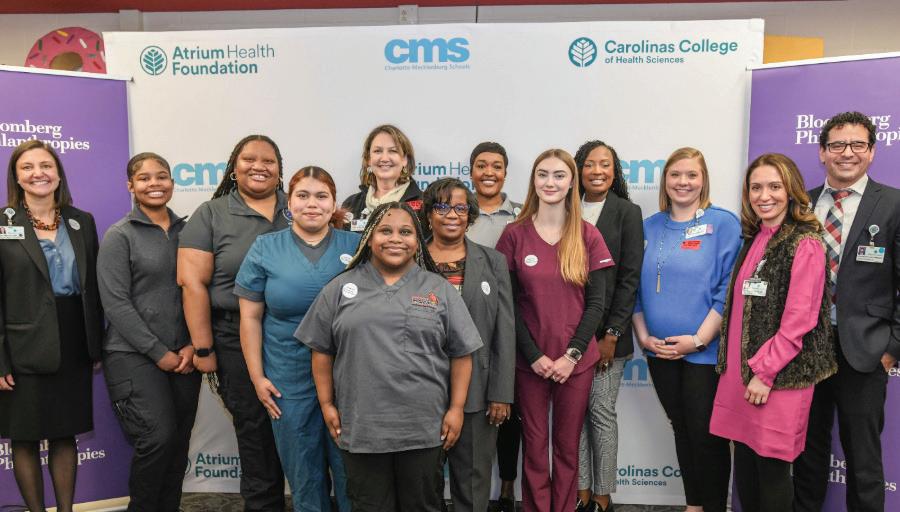
Bloomberg Philanthropies is donating $26 million to the Atrium Health Foundation to support Charlotte-Mecklenburg Schools for health care curriculum. This follows a $29.5 million grant last month to Duke Health, Durham Technical Community College and Durham Public Schools for a similar program.
$415 million portfolio of student loans from Truist Bank, expanding into a market that is being increasingly shunned by traditional lenders.
Bank of America is sending out warnings to employees who aren’t showing up enough at their offices. The warnings, called “letters of education,” threaten the employees with “further disciplinary action” if they don’t comply.
Residential door lock and hardware company ASSA ABLOY Americas Residential plans to terminate 87 employees by closing its location here, according to a filing with the N.C. Department of Commerce. The job cuts will occur from March through July.
Truist Financial eliminated 1,038 jobs during the fourth quarter, marking an overall 5.7% workforce reduction during 2023. The job cuts are part of a “sizable reduction in force” over a 12- to 18-month period that began in September.
Truist Financial named Justin Rutledge as its Charlotte market president,
overseeing commercial bankers. He has been a senior vice president and middle market banker in the area since 2022 after returning from Fort Worth, Texas, where he was Truist’s market president.
Walter Hood, a landscape architect with a studio in Oakland, California, was hired to design McColl Park at the intersection of Trade and Tryon streets. Hood spent part of his childhood in Charlotte.
Bojangles, the seventh-largest chicken chain in the country, said its expansion pipeline includes 270 new units, which would expand the company by a third. The company opened 40 new locations in 2023, with 10 of those being in new markets, including Dallas, Texas, Columbus, Ohio, and Orlando, Florida.
Ally Financial named Douglas Timmerman as its interim CEO. He had led dealer financial services. He succeeded Jeff Brown, who left to become president of Hendrick Automotive Group.
Washington D.C. investment firm
Galway Sustainable Capital’s Sterling Power Opportunity subsidiary bought a majority stake in Forsite Renewables with plans to expand its development of solar and battery projects. Forsite Development is a real estate company formed by Tom McKittrick in 2004 to redevelop coal plants closing for environmental reasons. It has expanded into renewables as an extension of its initial effort. The combined businesses employ 25 people, including 16 renewables staffers.

Frontier Airlines plans to add seven new destinations for service from CharlotteDouglas International Airport in the first half of the year. The airports served will be in New York, Houston, Dallas-Fort Worth, Chicago, Baltimore, Buffalo and San Juan, Puerto Rico. Frontier is based in Denver.
Piedmont Lithium laid off 16 workers, which represents 27% of its workforce, in a cost-cutting move. Piedmont Lithium added that it “is managing the pace of development and capital spending” at its U.S. projects, including a proposed mine in western Gaston County.
Ryder System acquired Cardinal Logistics, which provides dedicated fleets and professional drivers. Terms weren’t disclosed. Tom Hostetler and Vin McLoughlin, who founded Cardinal in 1997, will join Ryder. Both worked at Ryder early in their careers.
Heyco-Werk, which manufactures plastic molded parts for the automotive industry, will invest $12.75 million and hire 34 in Gaston County at a new plant. The Heyco Group has eight sites worldwide and employs approximately 1,250 people. Heyco-Werk began manufacturing in Emporia, Virginia, in 2019.
A new baseball team owner is coming to town promising a fresh start and a clean slate. Jacksonville, Florida-based Zawyer Sports and Entertainment plans to start a new baseball team here after the owners of the Honey Hunters filed for bankruptcy protection. Zawyer says it will pay off bills owned by the former owners, who played in the 10-team Atlantic League of Professional Baseball.
Dehn, a German company that makes products to protect electronic systems from power surges, will invest $38.6 million and create 195 jobs here. The company will build a plant within two years, and locate its Americas headquarters in the Merino Mill property. Wages will average $66,120, higher than Iredell County’s average of $63,674.
Lowe’s Cos. is eliminating an undisclosed number of corporate positions. The home-improvement chain has reported slowing demand as shoppers shifted away from big home-renovation projects that were popular during the pandemic.
Winston-Salem-based Novant Health ’s $320 million bid to buy two Iredell County hospitals from Community Health Systems is opposed by a Federal Trade Commission lawsuit. The complaint alleges the deal to buy Lake Norman Regional Medical Center
in Mooresville and Davis Regional Medical Center here threatened to raise prices. Novant says it will defend its acquisition plans.
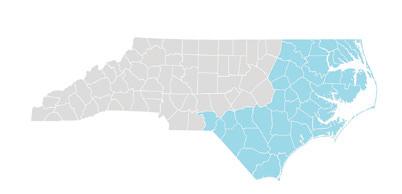
Military personnel stationed here from 1975 to 1985 had at least a 20% higher risk for a number of cancers than those stationed elsewhere, federal health officials said in a study about the base’s contaminated drinking water. The research compared those who lived and worked in a polluted environment to a similar group that did not. The study found military personnel at Marine Corps Base Camp Lejeune were at higher risk for some types of leukemia and lymphoma and cancers of the lung, breast, throat, esophagus and thyroid. Civilians who worked at the base also were at a higher risk for a shorter list of cancers.
Spain-based Enviva, a wood-to-energy company with 22 locations in eastern North Carolina, skipped a $24 million payment due to its bondholders, according to a securities filing. The company stock price has lost more than 99% of its value in the past year.
Bobby Taylor Oil and T&S Transport were sold to South Hill, Virginia-based Parker Oil Co. for an undisclosed amount. Bobby Taylor Oil sells retail propane and fuels throughout North Carolina. The company was founded in August 1963 by Bobby Taylor
Nitta Gelatin will close its plant here, idling 68 workers. The Japanese-based company makes gelatin and collagen ingredients for food products and dietary supplements. Layoffs will begin March 24.
A proposal to bring a minor league baseball stadium here is off the table, town officials say. The development cost was estimated at $105.6 million, with the stadium costing $59 million and the required infrastructure, including site preparations and utilities, estimated at $46 million.
Cape Fear Community College received a $3 million pledge from Dan Saklad, marking the largest naming rights donation in the college’s 65-year history. A building on Front Street will be known as the Dan and Sheila Saklad Health and Human Services Center.
A solar farm capable of generating power for up to 2,000 New Hanover homes is in initial stages of development in a landfill. The 3-acre farm, expected to cost $3 million to $5 million, would connect to existing utilities near the site, adding available power to the grid.
Julia-Olson Boseman, a former state senator and chair of the New Hanover County Board of Commissioners, was disbarred by the North Carolina State Bar. It investigated Olson-Boseman on allegations she mismanaged roughly $9,000 of clients’ funds while practicing law.
The Wilmington Urban Area Metropolitan Planning Organization voted 8-5 for a resolution asking state transportation officials to evaluate a tolled option for the Cape Fear Memorial Bridge. The group is seeking funding to replace the bridge. Opponents, which include city boards in Wilmington and Leland, say a toll would be a “double tax” for residents.

Switzerland-based Sandoz will close its plant that makes generic medicine brands for distribution in North America. The first layoffs will start in May, resulting in the loss of 213 jobs by Oct. 4. Employees were told of the plant closing in 2021 when it was owned by Novartis, another Swiss-based pharmaceutical company.
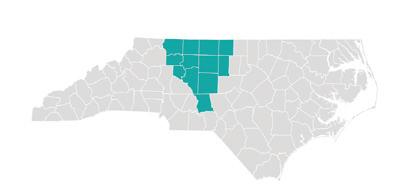
Moore County Airport received a $5 million grant through the N.C. Department of Transportation. The funds
will pay for structural updates, upgrades to existing terminals and some expansion, says Airport Director Rick Cloutier.
The Greensboro Housing Loan Fund, a public-private partnership for attainable housing, is developing a $32.5 million loan program, for which $21 million has been raised to date. The funds are aimed at forprofit and nonprofit developers of local, multifamily structures.
The former News & Record building is set to be condemned. An inspection report found the building was full of trash, drug paraphernalia, damaged furniture and human waste after Tiffany HolmesWilliams, 32, was found dead inside the building in August. The property is owned by Berkshire Hathaway, which had owned the Greensboro News & Record newspaper.
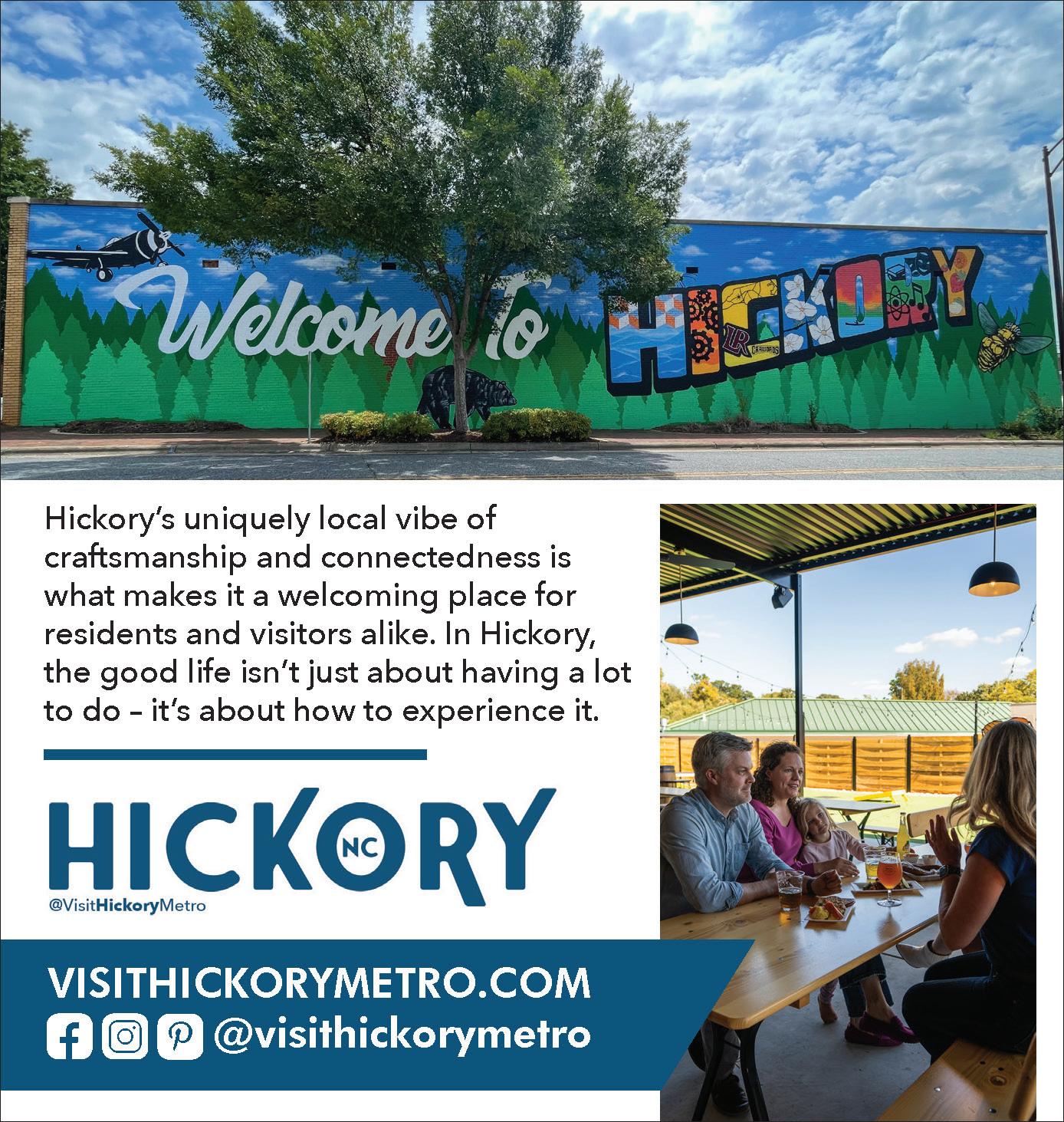
Unifi says it conducted a significant workforce reduction in recent months as part of a “new profitability improvement plan.” The yarn manufacturer did not disclose how many jobs have been eliminated.
The city has ended its relationship with Elliott Sidewalk Communities, which was hired in 2017 to oversee growth around Truist Point stadium. It delivered one of the four projects it pledged to develop in an $86 million investment called “The Outfields.” The company completed the Bedrock building in 2022.
Lumos, formerly NorthState, has launched a fiber-optic network in New Hanover County that will focus on the Wilmington area. The Wilmington expansion is connected to Lumos’ April announcement to spend $56 million to build 655 miles of the latest fiber-optic technology in portions of Wilmington and Carolina Beach, as well as communities including Ogden and Wrightsboro. Lumos, buoyed by federal and state grants, is spending hundreds of millions of dollars to expand internet into more rural areas of North Carolina.
Packaging company WestRock plans to close its Lexington plant and lay off 153 workers starting March 18, according to a state filing. None of the workers belong to a union, and the company expects the closing to be permanent.
Global Textile Alliance, which manufactures bedding and upholstery fabrics, will lay off 95 workers in April, a little more than half its workforce. The company blamed the job cuts on industry market conditions. The company was founded in 2001.

High-end home furnishings company
John-Richard established its headquarters and distribution hub by signing a 10-year lease on a 236,960-square-foot facility. Its former headquarters was in Greenwood, Mississippi. Whitsett and the Triad are closer to its concentration of East Coast customers, said Chief Merchandising Officer Scott Smith.
Novant Health completed its $2.4 billion purchase of three South Carolina hospitals from Tenet Healthcare Corp. Novant announced on Nov. 18 its plans to acquire Hilton Head Hospital, Coastal Carolina Hospital in Hardeeville and East Cooper Medical Center in Mount Pleasant.
Clothing-maker Hanesbrands will lay off 159 workers in April when it repurposes one of its distribution centers. Ending operations at the center will improve efficiencies and reduce costs, the company said. Hanesbrands employs about 1,100 workers in Forsyth County and 2,500 in North Carolina.
Salem One, a provider of print-based communications, acquired iTek Graphics of Concord. Terms weren’t disclosed. The transaction follows investments in Salem last summer by Chicago-based Granite Creek Capital Partners and Patriot Capital, which is based in Baltimore. iTek will operate its Concord plant and continue with its current brand name.

The Special Event Co. has been sold to a British communication firm DRPG for an undisclosed price. Special Event was

John Deere purchased about 35 acres north of its operations here, consisting of $1.275 million from seller Brantley Commercial Partners. The acquisition came about six months after the Illinois-based equipment company confirmed plans for a 115,000-square foot facility making battery packs in a joint venture with Germany’s Kreisel Electric.
founded by Sally Webb who will become a non-executive director. Matt Franks, DRPG’s group director of events, will be CEO.
Walt Disney Co. bought a $1.5 billion stake in video game maker Epic Games. The two companies said they will collaborate on new games and entertainment in a multi-year project. Disney and Epic have collaborated on video games such as “Kingdom Hearts 3” and “Star Wars Jedi: Survivor.” They have also worked together in the creation of more than 15 Disney Parks attractions.
Chad Pawlak is the new CEO of biotechnology company Genvor and Jesse Jaynes is the company’s new chief scientific officer. Interim CEO Judith Miller is becoming chief business officer and the interim chief financial officer. Genvor is
developing biological plant defenses to help farmers and growers maximize crop production.
North Carolina Central University Chancellor Johnson Akinleye announced his plans to retire at the end of this academic year. Akinleye was appointed as the 12th chancellor in 2017. The university said a national search is underway to find a successor.
North Carolina Central University opened its School of Business building. The 76,608-square-foot building, a $38.6 million project, houses a business incubator for student entrepreneurs, a real estate program and the Center for Entrepreneurship and Economic Development.
Science 37 Holdings, a drug trials services company, agreed to be sold for $38 million to Miami-based diagnostics

company eMed. The company was valued at $1 billion after going public in 2021 by merging with a special purpose acquisition company. That deal gave the company $235 million in cash. Science 37 laid off 73 employees, or about 23% of its staff, before the sale.
Indiana-based Thompson Thrift sold Marketplace at Ellis Crossing, a 71,517-square-foot shopping center that is part of a 30-acre mixed-use property, to anchor tenant Publix Super Markets for an undisclosed price. Thompson Thrift retained ownership of an adjacent 1.4-acre lot. Marketplace at Ellis Crossing includes Publix’s first Durham location.
Durham Public Schools closed its schools for several days due to large numbers of school employees not showing up. The Durham Association of Educators says at least 75% of school employees at each of these schools didn’t work as a protest to recent cuts to raises for classified staff. Schools Superintendent Pascal Mubenga, who came to the district in 2017, resigned.
Martin Marietta Materials agreed to buy 20 aggregates mines in the Southeast for about $2 billion from Blue Water Industries. The locations are in Alabama, South Carolina, Florida, Tennessee and Virginia. The move followed Martin Marietta Materials’s sale of its South Texas cement and related concrete operations to CRH Americas Materials for $2.1 billion in cash.
Wells Fargo is vacating the tower that bears its name in downtown Raleigh. The bank calls the move a “real estate consolidation.”
Lou Moshakos, owner of Raleigh’s LM Restaurants, acquired the office building at 227 Fayetteville St. for $14.9 million, according to Wake County records.
The Moshakos family runs LM Restaurants, the parent of the Carolina Ale House chain.
Builders Mutual Insurance and Progressive Casualty Insurance were served with class-action lawsuits over data breaches on their own computer systems in 2022. The cyber attacks may have exposed the personal data of more than 411,000 people.
Wake County sent out revaluation notices to property owners that reflect unprecedented increases in values. Tax Administrator Marcus Kinrade said continued growth, strong housing demand and short supply have led to higher property values.
Bandwidth and state officials terminated an agreement to add 1,100 local jobs in return for $32 million in state incentives. Last year, the company built a new headquarters near the PNC Arena. At the time, it employed 750 people.
Dogwood State Bank, formed in 2019 through the recapitalization of Morehead City-based Sound Bank, agreed to buy Seneca, South Carolina-based bank Community First Bancorporation for about $70 million, pushing its asset size past $2 billion. Community First has assets of $685 million and seven offices in South Carolina, three in North Carolina and two in Tennessee.

UNC Asheville faces a $6 million deficit that must be closed by June 30. Chancellor Kimberly van Noort says the university will curtail adjunct faculty. Van Noort was named chancellor in November after serving as the university’s
interim chancellor since Jan. 1, 2023. She imposed a freeze on new hires, travel, and expenditures. Enrollment has declined by 25% over the past five years.
Total compensation for Ingles CEO James Lanning increased 55%, to $3.3 million in 2023 from $2.1 million in fiscal year 2021, according to a federal filing. Board Chairman Robert Ingle II received a bonus of $6.6 million.
At least five former employees of the closed Pactiv Evergreen paper mill have joined the Haywood County Sheriff’s Office. Deputy Bryce Stasney told The Waynesville Mountaineer he likes his new job more than the mill, despite lower pay.
Caesars Entertainment extended its relationship with the Eastern Band of Cherokee Indians to bring its sports wagering platform to North Carolina when legalized sports betting begins on March 11. There are two in-person Caesars Sportsbook locations at Harrah’s casinos and Cherokee and Murphy. Caesars Sportsbook will have exclusive rights to mobile sports wagering at the two casinos and on Eastern Band of Cherokee tribal lands in western North Carolina.
A 550-acre tract located 17 miles east of Asheville that was planned to be Tiger Woods’ first North American golf course is up for sale for $19 million. It’s the second time the property has hit the real estate market after development plans fell through. ■

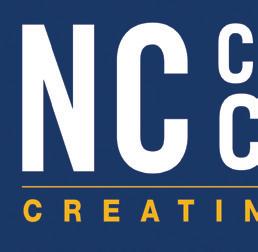


The North Carolina Community College System introduces Propel NC, a transformational plan to revolutionize our approach to education and workforce readiness. It’s more than a reform — it’s a renaissance, aligning education with the urgent needs of our economy and employers.

Propel NC merges innovative education with employer needs, focusing on high-growth sectors like advanced manufacturing, healthcare and IT. This approach not only drives economic vitality but also ensures our curriculum prepares a skilled workforce, offering flexibility to meet diverse career paths.
Propel NC introduces a dynamic funding model that ties college resources directly to labor-market outcomes, rather than traditional full-time enrollment metrics. This innovative approach incentivizes programs in high-demand sectors, ensuring that funding aligns with the actual needs of the economy and job market, fostering a more responsive educational system.
Endorsed unanimously by the N.C. Association of Community College Presidents, Propel NC represents a shared commitment to adapt to the evolving landscape of higher education, ensuring that community colleges remain a cornerstone of the state’s unprecedented economic success.
We invite the business community to support Propel NC. This investment is vital as we prepare students for the jobs of today and anticipate the needs of tomorrow. Together, we can ensure North Carolina remains at the forefront of economic development and innovation. the actual needs of the economy and job market, fostering a more responsive educational system.


With 58 community colleges across the state and hundreds of program areas, there’s no limit to what you can learn as a student within the N.C. Community College System. Nearly every North Carolina resident can drive to their nearest community college in 30 minutes or less. With a full range of curriculum and workforce continuing education offerings, North Carolina community colleges can help you meet just about any career or educational goal.
98% of NC Community College System students are North Carolinians 68%
Nearly 80 percent of students stay and work in the communities where they train and learn
In the year
2031
Propel NC is a first-of-its-kind plan to directly align our program funding to N.C.’s most urgent workforce needs.
there are projected to be 576,000 annual job openings and potential workforce shortages of all jobs will require a post-secondary or high-quality credential
More than half of our community college students are Adult Learners (25+) especially in healthcare, advanced manufacturing, biotechnology and information technology.





















































ALAMANCE COMMUNITY COLLEGE Burlington, Graham | alamancecc.edu
ASHEVILLE-BUNCOMBE TECHNICAL COMMUNITY COLLEGE Arden, Asheville, Candler, Marshall, Woodfin abtech.edu
BEAUFORT COUNTY COMMUNITY COLLEGE Washington | beaufortccc.edu
BLADEN COMMUNITY COLLEGE Dublin | bladencc.edu
BLUE RIDGE COMMUNITY COLLEGE Brevard, Flat Rock, Hendersonville blueridge.edu
BRUNSWICK COMMUNITY COLLEGE Bolivia, Carolina Shores, Leland, Southport brunswickcc.edu
CALDWELL COMMUNITY COLLEGE AND TECHNICAL INSTITUTE Boone, Hudson | cccti.edu
CAPE FEAR COMMUNITY COLLEGE Burgaw, Castle Hayne, Hampstead, Wilmington cfcc.edu
CARTERET COMMUNITY COLLEGE Morehead City | carteret.edu
CATAWBA VALLEY COMMUNITY COLLEGE Conover, Hickory, Newton, Taylorsville cvcc.edu
CENTRAL CAROLINA COMMUNITY COLLEGE Dunn, Lillington, Pittsboro, Sanford, Siler City cccc.edu
CENTRAL PIEDMONT COMMUNITY COLLEGE Charlotte, Huntersville, Matthews | cpcc.edu
CLEVELAND COMMUNITY COLLEGE Shelby | clevelandcc.edu
COASTAL CAROLINA COMMUNITY COLLEGE Jacksonville | coastalcarolina.edu
COLLEGE OF THE ALBEMARLE Barco, Edenton, Elizabeth City, Manteo albemarle.edu
CRAVEN COMMUNITY COLLEGE Havelock, New Bern | cravencc.edu
DAVIDSON COUNTY COMMUNITY COLLEGE Bermuda Run, Lexington, Mocksville, Thomasville | davidsonccc.edu
DURHAM TECHNICAL COMMUNITY COLLEGE Durham, Hillsborough | durhamtech.edu
EDGECOMBE COMMUNITY COLLEGE Rocky Mount, Tarboro | edgecombe.edu
FAYETTEVILLE TECHNICAL COMMUNITY COLLEGE, Fayetteville, Fort Bragg, Spring Lake faytechcc.edu
FORSYTH TECHNICAL COMMUNITY COLLEGE Kernersville, King, Walnut Cove, Winston-Salem forsythtech.edu
GASTON COLLEGE Belmont, Dallas, Lincolnton | gaston.edu
GUILFORD TECHNICAL COMMUNITY COLLEGE Colfax, Greensboro, High Point, Jamestown gtcc.edu
HALIFAX COMMUNITY COLLEGE Weldon | halifaxcc.edu
HAYWOOD COMMUNITY COLLEGE Clyde | haywood.edu
ISOTHERMAL COMMUNITY COLLEGE Columbus, Rutherfordton, Spindale isothermal.edu
JAMES SPRUNT COMMUNITY COLLEGE Kenansville | jamessprunt.edu
JOHNSTON COMMUNITY COLLEGE Clayton, Four Oaks, Smithfield | johnstoncc.edu
LENOIR COMMUNITY COLLEGE Kinston, La Grange, Pink Hill, Snow Hill, Trenton lenoircc.edu
MARTIN COMMUNITY COLLEGE Williamston, Windsor | martincc.edu
MAYLAND COMMUNITY COLLEGE Burnsville, Newland, Spruce Pine | mayland.edu
MCDOWELLTECHNICALCOMMUNITYCOLLEGE Marion | mcdowelltech.edu
MITCHELL COMMUNITY COLLEGE Mooresville, Statesville | mitchellcc.edu
MONTGOMERY COMMUNITY COLLEGE Troy | montgomery.edu
NASH COMMUNITY COLLEGE Rocky Mount | nashcc.edu
PAMLICO COMMUNITY COLLEGE Bayboro, Grantsboro | pamlicocc.edu
PIEDMONT COMMUNITY COLLEGE Roxboro, Yanceyville | piedmontcc.edu
PITT COMMUNITY COLLEGE Winterville | pittcc.edu
* Colleges who are featured advertisers are highlighted in boxes.
RANDOLPH COMMUNITY COLLEGE Asheboro | randolph.edu
RICHMOND COMMUNITY COLLEGE Hamlet, Laurinburg | richmondcc.edu
ROANOKE-CHOWAN COMMUNITY COLLEGE Ahoskie | roanokechowan.edu
ROBESON COMMUNITY COLLEGE Lumberton | robeson.edu
ROCKINGHAM COMMUNITY COLLEGE Wentworth | rockinghamcc.edu
ROWAN-CABARRUS COMMUNITY COLLEGE Concord, Kannapolis, Salisbury | rccc.edu
SAMPSON COMMUNITY COLLEGE Clinton | sampsoncc.edu
SANDHILLS COMMUNITY COLLEGE Pinehurst, Raeford, Robbins, Carthage sandhills.edu
SOUTHEASTERN COMMUNITY COLLEGE Whiteville | sccnc.edu
SOUTH PIEDMONT COMMUNITY COLLEGE Monroe, Polkton, Wadesboro | spcc.edu
SOUTHWESTERN COMMUNITY COLLEGE Sylva | southwesterncc.edu
STANLY COMMUNITY COLLEGE Albemarle, Locust | stanly.edu
SURRY COMMUNITY COLLEGE Dobson, Elkin, Mount Airy, Pilot Mountain, Yadkinville surry.edu
TRI-COUNTY COMMUNITY COLLEGE Marble, Murphy, Robbinsville | tricountycc.edu
VANCE-GRANVILLE COMMUNITY COLLEGE Creedmoor, Henderson, Louisburg, Warrenton vgcc.edu
WAKE TECHNICAL COMMUNITY COLLEGE Cary, Morrisville, Raleigh, Wake Forest, Zebulon waketech.edu
WAYNE COMMUNITY COLLEGE Goldsboro | waynecc.edu
WESTERN PIEDMONT COMMUNITY COLLEGE Morganton | wpcc.edu
WILKES COMMUNITY COLLEGE Sparta, West Jefferson, Wilkesboro wilkescc.edu

WILSON COMMUNITY COLLEGE Wilson | wilsoncc.edu

Since 1967, Sampson Community College’s (SCC) mission has been to provide accessible and affordable education, workforce training, and lifelong enrichment to all students in Sampson County, N.C. and beyond. The College currently offers numerous programs that can lead to various degrees, diplomas, certifications, licensures, skills and transferable college credit. Sampson CC is committed to serving students and the community through outreach, innovative and effective teaching, student support, and community partnerships. With its constant growth the College continues to remain one of the top community colleges in N.C., providing numerous educational, occupational and financial opportunities to all.




1801 Sunset Avenue Clinton, NC 28328 910-592-8081








Since 1958, Wayne Community College has stood as a cornerstone of educational opportunity and community enrichment within Wayne County and beyond. WCC offers more than 200 degree, diploma, certificate and continuing education programs designed to meet the needs of both traditional and non-traditional students. Whether individuals seek to earn an associate degree, transfer to a four-year university, acquire new job skills, or simply pursue personal enrichment, WCC has something to offer.
As a vital hub for workforce development and economic growth in Wayne County, WCC identifies workforce needs through partnerships with local industries, businesses, and government agencies and tailors its programs to align with these demands. By offering specialized training programs and certifications in fields such as healthcare, manufacturing, and information technology, WCC equips students with the skills and knowledge necessary to thrive in today’s competitive job market. This focus on workforce development benefits students by enhancing their employability and strengthens the local economy by supplying skilled workers to support business growth and innovation.
In late fall of 2024, WCC will celebrate the completion of its newest building on campus, the Center for Industrial Technology and Engineering. The 40,000-square-foot building will be the new home to many of the College’s Applied Technologies programs, including HVAC, Mechanical Engineering, Mechatronics Engineering, Industrial Systems, Operations Management, and Machining. Not only will CITE provide necessary growth for WCC, but it will also provide critical workforce growth opportunities for eastern North Carolina residents and employers.
In addition to its commitment to workforce development, WCC plays an integral role in community enrichment and cultural advancement. The college hosts a variety of events, workshops, and cultural activities that are open to the public, fostering a sense of community engagement and lifelong learning. From art exhibits and theatrical performances to guest lectures and community forums, WCC provides opportunities for residents of Wayne County to explore new interests, connect with others, and broaden their horizons.
As WCC continues to evolve and adapt to the changing educational landscape, its commitment to accessibility, hands-on learning, and community engagement remains steadfast. With a focus on innovation and service, WCC will continue empowering individuals and enriching communities for generations to come.



3000 Wayne Memorial Dr. Goldsboro, NC 27534
919.735.5151
WAYNECC.EDU



Screenshot from the N.C. Community College System’s legislative agenda presentation to lawmakers on Feb. 28.


Each year, there are an estimated 700 job openings in the health care sector in North Carolina, according to the N.C. Department of Health and Human Services. By 2033, our state will face an estimated shortage of 12,500 RNs along with shortages in other professional areas, including physicians and allied health workers. This growing demand for skilled health care professionals is occurring because of an aging population, continuous learning with technological advancements, specialization burnout and attrition. Expanding health care worker training programs is not only essential for the sustainability of our North Carolina health care system but also crucial for improving public health outcomes and promoting health equity.
The North Carolina Community College System is one of North Carolina’s greatest assets when it comes to workforce development – and specifically in responding to the workforce gap in health care. Community colleges are accessible and affordable, and most two-year public colleges offer nursing programs along with health carerelated certificate and degree programs.
That is why partnerships like the one between Gaston College and CaroMont Health in Gaston County are so important. This long-standing collaborative effort has resulted in the expansion of clinical simulation opportunities for Gaston College students and the larger health care community, as well as the addition of new health care programs to meet industry needs. Also because of the partnership, many students who have completed health care programs at Gaston College now work at CaroMont Health.
Gaston College is growing its health care program with a state-funded $60M expansion planned for the David Belk Cannon Health Institute. Once open, the facility will be capable of providing training opportunities to existing health care professionals and students through a full range of in-house simulation capabilities.
Gaston College’s existing program offerings include five nationally accredited health care programs, 13 health and human services programs, 13 university transfer partnerships, a health academy at East Gaston High School, and the Gaston Early College of Medical Sciences through Gaston County Schools. Through the new Health Science Education and Simulation Center, the college’s programs will grow to include several new programs, new national accreditations, and new apprenticeship pathways all geared toward addressing the health care workforce gap in North Carolina.
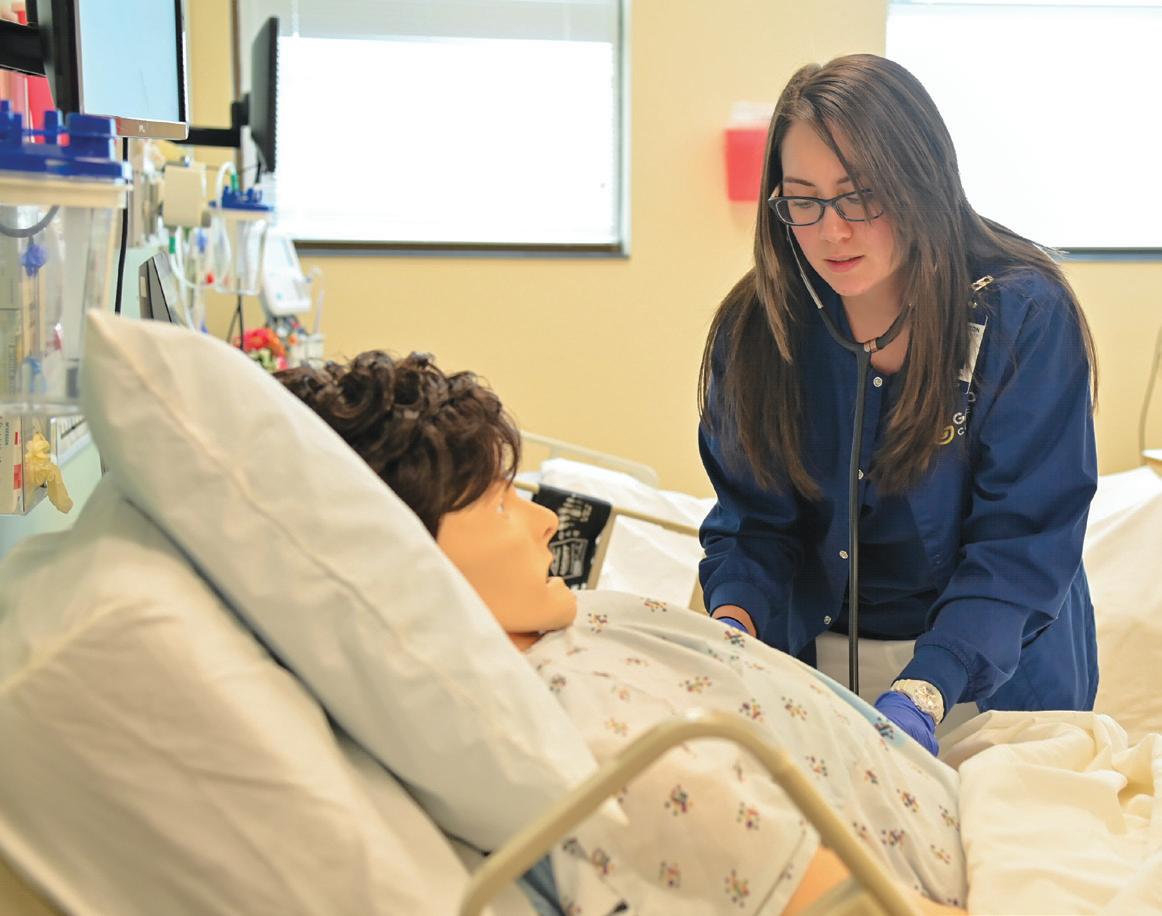


201 Highway 321 S. Dallas, NC 28034 704-922-6232
GASTON.EDU
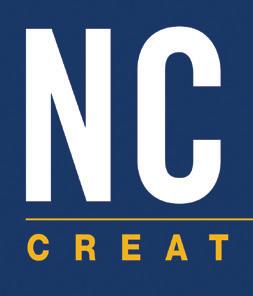


Join the roster of companies partnering with the North Carolina Community College System for your higher educational and training needs. From startups to global corporations, we fuel North Carolina’s job engine.

525,000+













BY KEVIN ELLIS AND DAVID MILDENBERG
Duke University Hospital grabbed the top spot in Business North Carolina’s annual ranking of the state’s best hospitals, and it had company with two other Duke University Health System hospitals. Duke Regional Hospital in Durham and Duke Raleigh Hospital fi nished fourth and tied for eighth, respectively. The three Triangle-area hospitals had fi nished tied for third, ninth and 19th, respectively in the 2022 ranking.
While Duke Raleigh moved up from 19th in the rankings a year ago, it wasn’t the only hospital in the top 10 to make a signifi cant jump. Asheville’s Mission Hospital, which is drawing lots of criticism, is tied for sixth, up from 12th a year ago. Charlotte’s Novant Health Presbyterian Medical Center went from 16th to tied for sixth.
The list uses calculations of more than 25 health care metrics, with a signifi cant weighting based on data from the U.S. Centers for Medicare & Medicaid Services. The report includes patient-satisfaction surveys, infections, readmissions and mortality rates for
common procedures. Other data includes fi ndings from safety report cards by the Washington, D.C.-based nonprofi t The Leapfrog Group, distinction awards from insurer Blue Cross and Blue Shield of North Carolina and national performance ratings from U.S. News & World Report
Seven hospitals appear in the top 25 after being unranked the previous year. Newcomers to this year’s top 25 are Raleigh’s WakeMed Health & Hospitals; Novant Health Mint Hill Medical Center; Hendersonville’s AdventHealth; Northern Regional Hospital in Mount Airy; Atrium Health Wake Forest Baptist Health in Winston-Salem; Hickory’s Catawba Valley Medical Center; and Novant Health Matthews Medical Center.
The methodology to create this list tends to favor large institutions because they gain more points based on national awards and performance rankings. Smaller hospitals perform fewer procedures, which eliminates those institutions from select categories used for calculations.
BEDS: 1,048
2023 RANK: T-3 PRESIDENT: GREGORY PAULY
Dr. Gregory Pauly took over as president of the 11,000-employee Duke University Hospital on Jan. 31, also overseeing the Durham and Raleigh campuses. He was previously chief operating officer at Massachusetts General Hospital in Boston. Duke Health, which oversees the entire organization and includes 23,000 employees, named Dr. Craig Albanese as president and CEO. Dr. Mary Klotman became the first executive vice president for health affairs in July, and will remain dean of the School of Medicine. Dr. Thomas Owens, the former president of Duke University Hospital, was promoted to executive vice president and chief operating officer for Duke Health. The Albanese and Klotman appointments reflect a restructuring of the leadership model for Duke Health’s academic and clinical missions, which were previously consolidated under Dr. Eugene Washington, who stepped down in June.
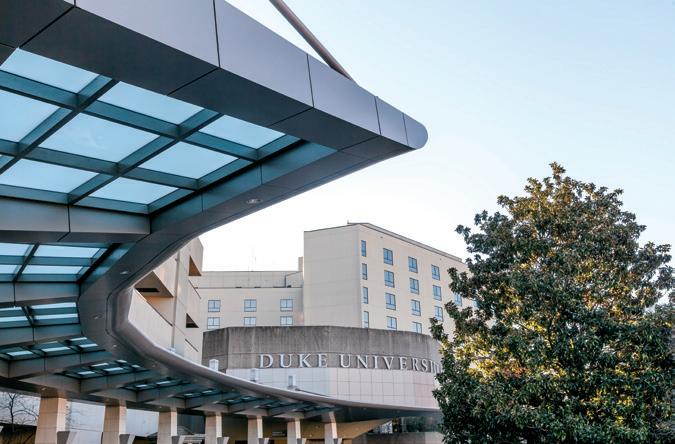
The National Institutes of Health awarded Duke University School of Medicine more than $527 million in federal funding in 2022, ranking ninth nationally among academic medical centers. Duke has ranked in the top 10 in NIH research funding for seven consecutive years. Duke Health reported a $295 million operating loss in the 2023 fiscal year, according to Fitch Credit Ratings. Enactment of the Healthcare Access and Stabilization Program and Medicaid expansion should spark improved financial results, according to Fitch.
After more than 110 years in Greensboro, Cone Health opened its first urgent care center in Winston-Salem in January, and second in Forsyth County. Cone faces larger Triad rivals Atrium Health Wake Forest Baptist and Novant Health in a more competitive environment. Atrium overcame Cone’s opposition to win regulatory approval last year for a $246 million, 36-bed hospital in north Greensboro, two miles north of a Cone Health medical center. Cone Health is appealing the decision, which CEO Mary Jo Cable says will boost medical costs and serve as a “way station” for patients needing more intense care to go to Atrium’s big hospital in Winston-Salem.

Meanwhile, Moses Cone Hospital broke ground last fall on a five-story, $160 million heart and vascular tower, with an opening expected in fall 2025. A smaller heart and vascular center at Alamance Regional Medical Center in Burlington will open this summer. The not-for-profit authority expects to invest $500 million on capital projects over the next decade. It also kicked off an innovative program last year aimed at boosting the life expectancy of residents of several specific ZIP codes by at least five years. The “Catch 5 in 5” program followed research showing areas where people live 15 years less on average than those in an adjacent ZIP code.
BEDS: 985
2023 RANK: T-3 PRESIDENT:
In May, UNC Hospitals will open the $425 million N.C. Surgical Hospital. The seven-story, 377,000 square-foot facility will feature 26 operating room suites that will be twice the size of current surgical rooms. It follows last year’s opening of the $116 million Roper Hall, the new home of UNC’s medical school, as it expands class sizes from 190 to 230. A mix of donations and $68 million in state bond money paid for the building. The school received about $359 million in National Institutes of Health funding in fiscal year 2022, ranking sixth among peer public universities.

Also in 2023, UNC Health and the N.C. Department of Health and Human Services opened a 54-bed Youth Behavioral Health hospital in Butner. Officials expect the 200 employees, including psychiatrists, pediatricians, art and occupational therapists, to treat more than 800 children per year.
UNC announced plans for a $2 billion children’s hospital, expected to open around 2030. It will include a 100-bed psychiatric hospital. The state has awarded $320 million to kick off the project. Overall, UNC Health’s network includes 14 hospitals and employs about 40,000 people.
In April 2023, Duke University Health System removed the chief financial officer, chief nursing officer and chief operating officer after a “thorough assessment” of performance. The shakeup came about two months after Devdutta Sangvai became president.
Duke Regional has more than 3,500 employees, including 500-plus physicians, and mainly serves Durham, Orange, Person, Granville and Alamance counties. The hospital, originally called Durham County General, opened in 1976 and has been part of Duke Health since 1998. In fiscal year 2023, Duke Regional admitted 15,866 patients and had 236,000 outpatient visits.

Duke Regional was named the most socially responsible U.S. hospital last year by Boston-based Lown Institute. The think-tank’s criteria included health equity, value and patient outcomes, racial inclusivity, community investment and pay equity. Leapfrog gave an A rating to the hospitals for its safety record.
Kirsten Riggs is interim president after Ernie Bovio left in January to become president of Novant Health New Hanover Regional Medical Center and Coastal Region in Wilmington. Riggs joined Rex in 1998 and has held prior leadership roles in cardiology, surgical services and ambulatory administration. She has a bachelor’s degree in nursing from East Carolina University and a master’s degree in health administration from Pfeiffer University.

In late 2023, Rex opened the North Carolina Neuroscience and Spine Center, which offers specialized care for brain and back issues. The center repurposed the space that previously held the UNC Rex Cancer Center, which moved into a freestanding, three-story building that opened in March 2022. The $65 million, 145,000-square-feet Cancer Center tripled Rex’s space for oncology care.
The $170 million UNC Health Rex Holly Springs hospital marked its second anniversary, reporting higher-than-expected volumes of emergency visits, surgeries and more. The institution has 50 beds. Rex is looking at ways to expand the services available in that fast-growing region.
UNC Rex Healthcare is the sole hospital in North Carolina, and among only 18 nationwide, to receive 22 consecutive “A” grades every year since 2012, when the Washington, D.C.-based Leapfrong Group started rating hospitals twice per year for patient quality and safety.
BEDS: 815
2023 RANK: T-12
PRESIDENT: CHAD PATRICK
In July, Mission opened the $65 million, 120-bed Sweeten Creek Mental Health and Wellness Center, followed a month later by the new Burn, Wound and Hyperbaric Center. It is the first burn center in western North Carolina. Mission Health also partnered with another HCA Healthcare division to open Head and Neck Specialists of Western North Carolina, which specializes in complex head and neck cancers.

Mission Hospital received its fifth consecutive A rating from Leapfrog for quality and safety. Healthgrades named Mission Health one of the nation’s 50 Best Hospitals, the only North Carolina facility on the list.
Despite its positive recognitions, HCA Healthcare continues to face intense criticism for how it operates Mission Health. N.C. Attorney General Josh Stein filed a lawsuit in December against HCA, asking the court to order the for-profit company to restore emergency and trauma services and oncology services to the level Mission Hospital provided before HCA’s $1.5 billion acquisition in 2019.
In a separate action, investigators with the N.C. Department of Health and Human Services listed Mission as being in “immediate jeopardy” of losing its Medicare and Medicaid funding over delayed responses and other shortcomings in its emergency department. On Feb. 1, the federal Centers for Medicare and Medicaid Services issued a similar “immediate jeopardy” report.
Mission said it is addressing the shortcomings. “This is not the standard of care we expect, nor that our patients deserve, and we will work diligently to improve,” according to a statement. HCA is the largest U.S. healthcare system, with more than 180 hospitals.
BEDS:
Novant Health’s year was marked by lots of dealmaking and executive turnover. In early February, Novant completed its $2.4 billion acquisition for three coastal South Carolina hospitals owned by Tenet Healthcare. But its $320 million bid for two Iredell County hospitals in March 2023 prompted a Federal Trade Commission lawsuit in January, seeking to block the deal on antitrust grounds. In Charlotte, Novant parted ways with executive vice presidents Jesse Cureton and Angela Yochem, while CFO Fred Hargett and former Chief Operating Officer Jeff Lindsay left for other hospital systems. Meanwhile, the authority’s two flagship hospitals in North Carolina scored well in various industry ratings.
BEDS: 186 2023 RANK: 19
In August, the hospital submitted an application to the N.C. Department of Health and Human Services to add as many as 41 beds at a cost of $14 million. UNC Rex and WakeMed North hospitals also are seeking expansions as part of an annual bid process. State regulators agree Wake County needs 44 more hospital beds.


The Raleigh hospital employs more than 2,000 people, admitted 10,204 patients and had 397,299 outpatient visits in fiscal year 2023. It has served Wake County for more than 35 years and been a part of Duke Health since 1998. Leapfrog awarded its top A grade to the hospital for its safety record.
In January, the hospital’s maintenance employees voted 14–11 in favor of unionization, which will enable the International Union of Operating Engineers Local 465 to seek a collective bargaining contract.
BEDS: 402
2023 RANK: T- 3 CEO, PRESIDENT: MICKEY FOSTER
The Sandhills hospital, which serves 15 counties in the mid-Carolinas, opened its $68 million cancer center last March, upgrading its services for patients at the 120,000-square-foot, four-story outpatient center. Research and clinical trials are also part of the center. A $5 million expansion of Women & Children’s Services last year increased the number of triage rooms from six to 10 and labor and delivery rooms from six to nine. Long-term plans call for a new tower to serve women and children at the Moore Regional campus. Moore Regional Hospital was recognized as one of the nation’s top 100 hospitals, according to analysis provided by PINC AI and reported by Fortune. It was the third consecutive year that the hospital had received the designation.

VICE PRESIDENT: ASHA RODRIGUEZ
457 | 2023 RANK: 7
BEDS: 859
2023 RANK: T -7 PRESIDENT: CHAD SETLIFF
The 1.8 million-square-foot center opened in 1964 and serves a footprint of more than 20 counties, with 921 licensed beds making it the second-biggest hospital in the Triad. It is adding a $444 million, five-story tower that is the biggest investment at the campus since 2007. It will house 59 critical-care rooms and 36 medical-surgical rooms, with completion expected in 2025. Vannoy Construction is the contractor. The latest project follows a $180 million investment to enhance services for women and children, renovated the center’s cafeteria, added a new energy plant and modernized patient rooms.

UNC HEALTH PARDEE HENDERSONVILLE 11
12
ATRIUM HEALTH WAKE FOREST BAPTIST
CEO: JULIE ANN FREISCHLAG
BEDS: 885 | 2023 RANK: T-12
21
NORTHERN REGIONAL HOSPITAL MOUNT AIRY TIED
PRESIDENT, CEO: CHRIS LUMSDEN
BEDS: 133 | 2023 RANK: NR
ATRIUM HEALTH WAKE FOREST BAPTIST HIGH POINT MEDICAL CENTER HIGH POINT 13
PRESIDENT, CEO: JAMES KIRBY II
BEDS: 222 | 2023 RANK: T-20
CAROLINAEAST MEDICAL CENTER NEW BERN
CEO: MICHAEL SMITH
BEDS: 350 | 2023 RANK: T-7
UNC HEALTH NASH ROCKY MOUNT
CEO: L. LEE ISLEY
BEDS: 272 | 2023 RANK: 20
WAKEMED HEALTH & HOSPITALS
RALEIGH
PRESIDENT, CEO: DONALD GINTZIG
BEDS: 726 | 2023 RANK: 2
CAROMONT REGIONAL MEDICAL CENTER GASTONIA
PRESIDENT, CEO: CHRIS PEEK
BEDS: 476 | 2023 RANK: T-10
ATRIUM HEALTH CABARRUS CONCORD
VICE-PRESIDENT: ASHA RODRIGUEZ
BEDS: 457 | 2023 RANK: T-10
NOVANT HEALTH MINT HILL MEDICAL CENTER MINT HILL
PRESIDENT, CEO: JOY GREEAR
BEDS: 36 | 2023 RANK: NR
A DVENT H EALTH HENDERSONVILLE
WINSTON-SALEM 19
PRESIDENT, CEO: BRANDON NUDD
BEDS: 103 | 2023 RANK: NR
20
ATRIUM HEALTH CAROLINAS MEDICAL CENTER
CHARLOTTE
FACILITY EXECUTIVE: D. CHANNING ROUSH
BEDS: 907 | 2023 RANK: T-12
21
23
24
25
PRESIDENT: JAMES HOEKSTRA BEDS: 351 | 2023 RANK: NR
CATAWBA VALLEY MEDICAL CENTER HICKORY
CEO: DENNIS JOHNSON
BEDS: 258 | 2023 RANK: NR
ECU HEALTH MEDICAL CENTER GREENVILLE
PRESIDENT, CEO: JAY BRILEY
BEDS: 974 | 2023 RANK: 18
NOVANT HEALTH MATTHEWS MEDICAL CENTER MATTHEWS
PRESIDENT, CEO: JASON BERND BEDS: 157 | 2023 RANK: NR
2024
The Centers for Medicare and Medicaid Services gave its highest, five-star ratings to 11 N.C. hospitals in 2023.
Atrium Health Lincoln, Lincolnton
Cape Fear Valley Hoke, Raeford
Atrium Health Wake Forest Baptist Davie Medical Center, Bermuda Run
Duke Raleigh Hospital, Raleigh
Duke University Hospital, Durham
Cone Health Moses Cone Hospital, Greensboro
Novant Health Mint Hill Medical Center, Mint Hill
UNC Rex Healthcare, Raleigh
Mission Health McDowell, Marion
UNC Medical Center, Chapel Hill
Watauga Medical Center, Boone



These are the top acute-care hospitals in the state based on the percentage of patients who would recommend the hospital to others, as of December 2023. The ranking is based on the Hospital Consumer Assessment of Healthcare Providers and Systems, a survey completed by adult hospital patients between 48 hours and six weeks after discharge.


The state’s largest health insurer recognizes hospitals for their quality of care in certain specialties, based on criteria including patient safety and results and input from the medical community. The hospitals listed here were designated as blue distinction centers as of early January.
Atrium Health Cabarrus, Concord
Bariatric surgery; cardiac care; spine surgery
Spine surgery; lung transplant; liver transplant - deceased donor; bone marrow/stem cells transplant; pancreas transplant; kidney transplant - deceased donor; kidney transplant - living donor; pediatric heart transplant; pediatric bone marrow/stem cells transplant; pediatric liver transplant; pediatric kidney transplant ECU Health Medical Center, Greenville
Knee
Bariatric surgery
Cone Health Moses Cone Hospital, Greensboro
Cardiac care; knee and hip replacement; spine surgery
UNC Health Nash, Rocky Mount
Bariatric surgery; knee and hip replacement; maternity care
Novant Health New Hanover Regional Medical Center, Wilmington
Bariatric surgery; knee and hip replacement; spine surgery
Novant Health Forsyth Medical Center, Winston-Salem
Bariatric surgery
Novant Health Kernersville Medical Center, Kernersville
Bariatric surgery
Novant Health Presbyterian Medical Center, Charlotte
Bariatric surgery; cardiac care; knee and hip replacement
Novant Health Rowan Medical Center, Salisbury
Bariatric surgery; knee and hip replacement
Onslow Memorial Hospital, Jacksonville
Maternity care
UNC Health Pardee, Hendersonville
Bariatric; knee and hip replacement
Rutherford Regional Health System, Rutherfordton A Duke LifePoint Hospital
Knee and hip replacement
Sentara Albemarle Medical Center, Elizabeth City
Knee and hip replacement
UNC Health Lenoir, Kinston
Bariatric surgery
UNC Medical Center, Chapel Hill
Bariatric surgery; cardiac care; knee and hip replacement; spine surgery; heart transplant; liver transplant - deceased donor; bone marrow/stem cells transplant; pediatric heart transplant; pediatric bone marrow/stem cells transplant; pediatric kidney transplant; kidney transplant - deceased donor; kidney transplant - living donor
UNC Rex Healhcare, Raleigh
Bariatric surgery; cardiac care; knee and hip replacement; spine surgery
Atrium Health Wake Forest Baptist HealthDavie Medical Center, Bermuda Run
Knee and hip replacement
Atrium Health Wake Forest Baptist HealthHigh Point Regional Medical Center, High Point
Bariatric surgery; knee and hip replacement
Atrium Health Wake Forest Baptist HealthLexington Medical Center
Knee and hip replacement
Atrium Health Wake Forest Baptist Medical Center, Winston-Salem
Bariatric surgery; knee and hip replacement; spine surgery; heart transplant; bone marrow/stem cells transplant; pancreas transplant; kidney transplant - deceased donor; kidney transplant living donor; p ediatric kidney transplant
WakeMed Cary Hospital, Cary
Bariatric surgery; knee and hip replacement; maternity care
WakeMed Raleigh Campus, Raleigh
Knee and hip replacement; maternity care; spine surgery
Wilson Medical Center, Wilson A Duke LifePoint Hospital
Knee and hip replacement; maternity care
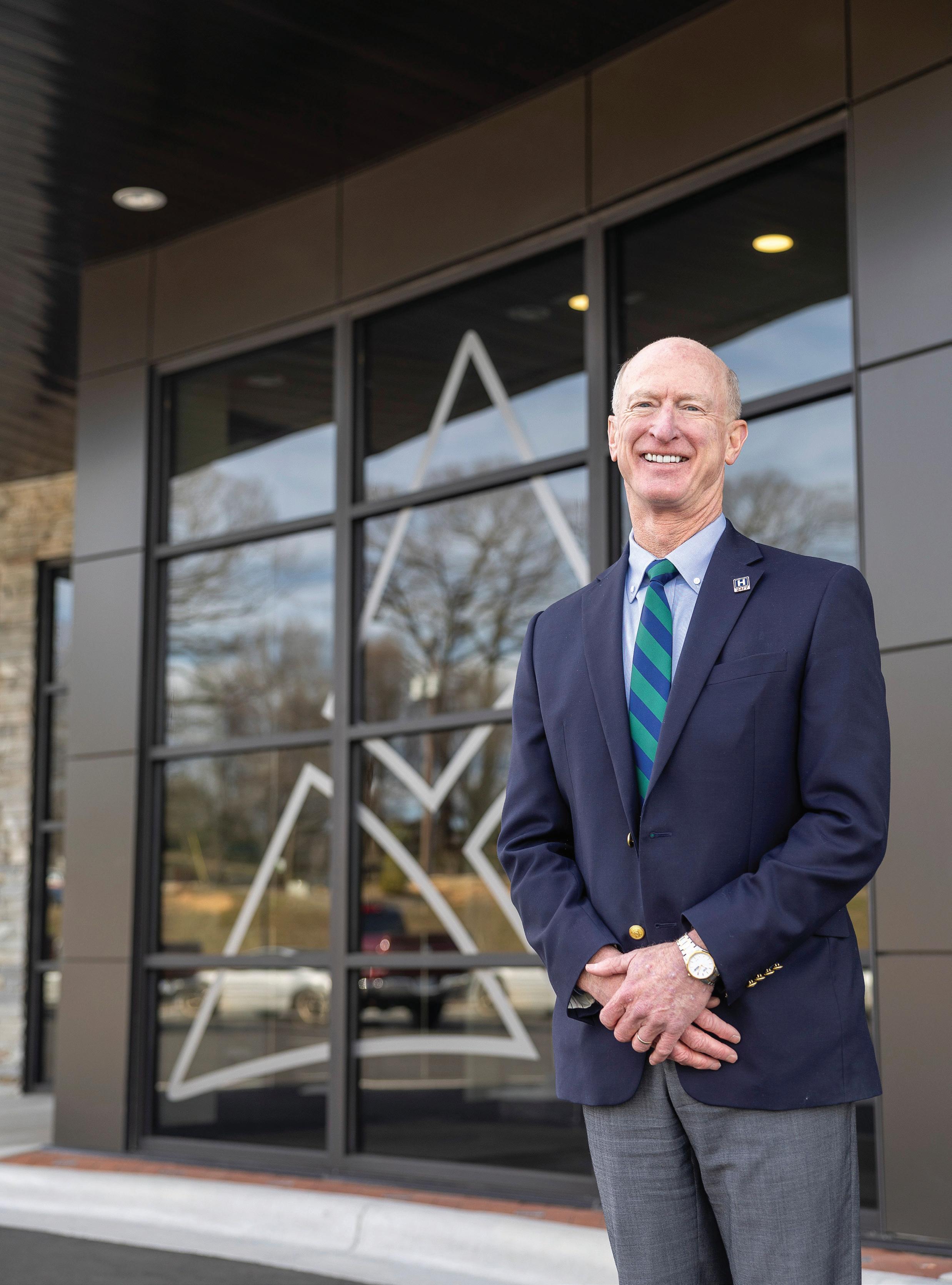
Mount Airy and Morehead City are among the few N.C. towns with thriving independent hospitals
By Edward Martin
Alife of hard work and a working man’s meat-and-potatoes diet, produced mostly by his own hands, has come to this.
The intravenous line in his arm runs cold for a moment as radioactive tracer flows, but there’s no pain. Technicians monitor him from an adjoining control room while the liquid courses through his heart and arteries, producing gamma-ray images.
The suspicions of his family doctor who sent him here were right — the man is on the verge of a heart attack. This, the most advanced nuclear-medicine scanner available, shows blockages in critical arteries, including the one that cardiologists call the widow-maker, the heart’s left anterior descending artery.
Northern Regional Hospital in Mount Airy has an arsenal of scanning technology, including two similarly advanced 128-slice computed tomography scanners. None match the three-dimensional pictures created by this machine, called a single-proton emission computed tomography, or SPECT.
Treated at a hospital within a few miles of his home, the man should enjoy years more of ham biscuits and collard greens.
The 133-bed facility in Mount Airy is one of only 10 independent community hospitals surviving among North Carolina’s 110 acute care institutions. The same number have been bought, closed or otherwise disappeared since 2005, when the Sheps Center UNC in Chapel Hill began researching the trend.
The latest to have vanished, Martin General Hospital in Williamston, closed in August after losing more than $30 million in the past few years. Local doctors are trying to set up a nonprofit to serve the now-closed hospital and outlying clinics.
“We have people having to drive an hour to get any kind of care at all,” says Jody Fleming, president of the 130-member North Carolina Hospital Association’s strategic partners arm, which helps struggling hospitals. “These are life-and-death situations when the closest hospital is an hour away.”
Survivors such as Northern Regional are bucking momentous odds. Though each community is different, threads of common characteristics connect them all.
Most employ old-fashioned business stratagems and what administrators such as Northern CEO Chris Lumsden portray as common sense: provide a good product, often at lower prices, than more muscular big-city competitors. He estimates his hospital can provide about 80% of Mount Airy region’s healthcare needs, with more specialized care provided by larger peers in bigger cities.
Investing in advanced technology such as Northern’s requires that institutions operate in the black, a challenge for all hospitals, but especially those without large investment portfolios. A star performer is Gastonia’s CaroMont Regional Medical Center, which competes against Charlotte-based Atrium Health, part of Advocate Health, the nation’s third-largest not-for-profit system.
The independent 476-bed medical center three years ago plowed $5 million into a hybrid operating room that enables hundreds of minimally invasive heart-valve repairs without the dangerous necessity of popping open the patient’s sternum. It’s made similar investments in five robotic surgery units and other technology.
The CaroMont system has revenue of nearly $1 billion, and has
operated in the black during each of the seven years in which Chris Peek has been CEO.
“When it comes to frugality, we have good muscle memory,” he says.
Regardless of size, hospitals are required to meet what regulators call accepted standards of care, according to analysts at Medicare, Healthgrades and U.S. News & World Report. A patient undergoing a hip replacement at rural Northern Regional should fare as well medically as at WakeMed in Raleigh or Novant Health Presbyterian in Charlotte.
Hugh Chatham Health has more than 300,000 patient encounters a year at its main Elkin hospital and physician sites in 17 northwestern North Carolina and southwest Virginia counties. It is investing nearly $30 million in an electronic records system, a crucial technology for hospitals.
“We’re able to do that because we’re a lean, fiscally proactive operation,” says CEO Paul Hammes. The not-for-profit Hugh Chatham had a budget of about $120 million in 2023, ending the year with what he calls a “nominal” shortfall. “Technology like this is a big reason why a lot of small, independent hospitals decide it makes sense to go with a large partner.”
Survivors share other characteristics, such as intensely local governance in which the hospital board chair might be a patient’s banker or preacher. Surveys, Medicare data, patient-satisfaction and other measures of quality rebuke the notion that bigger equates to better care.


Hugh Chatham, UNC Health Nash in Rocky Mount, Southeastern Regional Medical Center in Lumberton, Northern Regional in Mount Airy and UNC Health Pardee in Hendersonville have been repeatedly named among the nation’s top 150 community hospitals by Becker’s Hospital Review, a trade magazine. (UNC Health has agreements with Nash, Southeastern and Pardee.) Healthgrades, a hospital-rating service, named Pardee as one of the nation’s 100 best hospitals.
Similarly, Carteret Health Care in Morehead City is the only Tar Heel hospital recognized by the New York-based Chartis Center for Rural Health as one of the nation’s top 100 community hospitals.
Carteret has also been singled out for excellence in patient safety and women’s care by Leapfrog, a program created by the nation’s largest industries to rate healthcare for their employees. National women’s organizations have honored its obstetrics and breast-cancer care, and Blue Cross & Blue Shield of North Carolina includes it on its Hospitals of Distinction list for bariatric procedures.
Focus is a key to Carteret’s success, o cials say. “You can’t be everything to everybody, so we just try to be the best at what we do,” says Mark Shouse, a Morehead City banker who heads Carteret’s board.
Research shows that’s a characteristic that runs through successful Tar Heel community hospitals. ey recognize their limits, and turn to alliances with larger hospitals when a patient’s needs require advanced care.
Researchers at Johns Hopkins Hospital in Baltimore last year found patients who received carotid-artery stents from doctors most experienced in the procedure had mortality rates a third lower than those operated on by less-experienced doctors. A handful of surgeons at the world-famous hospital did most of the 63 such procedures.
“We understand what we are here to do,” says Hammes. “What we do, we do very well, but we’re not so stubbornly independent we insist on doing everything.”
Healthgrades has awarded his hospital ve stars for its knee and hip replacement program, and it has received similar accolades from several women’s organizations for obstetrics. e American Health Association gives it its highest rating for stroke care.


Regardless of size, many hospitals have operating margins of only about 1% to 1.5%, according to the hospital association’s Fleming. He notes that the S&P average for all businesses is about 10%.
Executives of some small hospitals view mergers with large systems as inevitably leading to reduced local service as patients, especially those with lucrative elective procedures, are steered to the larger parent.
“I won’t win any friends saying this,” says the CEO of one, who didn’t want to be named. But the revenue of smaller hospitals remains enticing to growth-minded larger entities seeking economies of scale. “ at’s where the money is,” he says, using Depression-era hood Willie Sutton’s comment on why he robbed banks.

It seems contradictory, but Sheps researchers found that independent community hospitals nationwide that were nancially stable when acquired were twice as likely to be closed as those that were struggling. at supports the common suspicion among administrators of small hospitals that mergers lead to reduced resources and eventual shutdowns.
“We were approached 10 or 12 years ago and told that we had to do this to survive,” says Carteret’s Shouse. “We proved them wrong. We don’t want a group of senior leaders in Raleigh, Charlotte or Winston-Salem making decisions for Carteret. ere may come a time when we have to consider it, but right now, we see larger hospitals using outlying hospitals like feeder systems.”
Mark Holmes, who researches rural hospitals at the Sheps Center, says that’s an accurate viewpoint. For every hospital bailed out by a big one, “there’s another that the system came in and started stripping out all the pro table stu ,” and then shut it down.
Hospitals, and particularly small rural ones, face tough nancial times. A study by Deloitte, the global nancial consulting rm, concluded 31% of small hospitals involved in mergers wanted greater access to capital. Twenty-nine percent felt they could deliver care more e ciently. Small, independent hospitals are typically squeezed, and Northern is no exception.
“Our revenue is about $275 million a year, but of that we only collect about $120 million,” says Lumsden. Charity care,
Kyle Marek

uncollectable bills and other matters eat the difference. “We collect about 38 cents on the dollar and from that we pay our bills.”
Big or small, hospitals complain that they barely break even when serving patients on the government's Medicare insurance plan for older people. The financial plan is worse for aiding Medicaid patients, who are indigent, despite increasing federal support occurring this year after state officials approved expansion of the program. Small hospitals are less likely to have significant investment holdings to stand the strain.
Luck of the draw plays a big role in independent community hospital finances.
On a recent cold winter day, seagulls swooped around the striking rotunda of the 135-bed Carteret Health Care hospital in Morehead City. Built in 1967, it has more than 1,100 employees, including 330 nurses. CEO Kyle Marek says it is profitable, with annual revenue of nearly $200 million and a capital budget this year of about $40 million.
It doesn’t scrimp on quality. If doctors here are stymied, they consult with the famous Mayo Clinic through a working alliance. “We can reach out to them at any time,” says Marek. That’s a common characteristic of successful independent rural hospitals, with similar agreements with Duke, Atrium, UNC Health and others.
Marek stresses that Carteret benefits from its location in coastal Morehead City, with a large number of wealthier, retired patients holding insurance from Blue Cross Blue Shield, Medicare and other large insurers. Conversely, most rural hospitals face disproportionate numbers of charity and Medicaid patients.
Logically, independent hospitals governed by local residents and supported by local foundations are more likely to be in touch with their communities. “We’re in our 94h year and no organization can last nearly 100 years without a deep sense of obligation to the community,” says Hammes at Hugh Chatham Health.
Adds Peek, CEO of the much larger CaroMont in Gastonia, “Monopolies are rarely good for consumers,” and patients are a hospital’s consumers. His hospital had 1.3 million patient encounters last year, but maintains “a different level of emotional connection.”
Patients, he adds, often refer to it as “my hospital” rather than “ the hospital.”
Such connections are more than talking points. Decisions regarding local health care, say a number of North Carolina’s small-hospital CEOs, are made at home rather than by executives in Charlotte, Winston-Salem or out of state.
“Our board of directors consists of people who reside in and are leaders in this community,” adds Peek. “They’re bank presidents, pastors, people in investments and insurance and other roles.”
Many have direct stakes in the hospital’s success, such as in CaroMont’s latest endeavor, a $200 million medical campus in Belmont, that includes a 66-bed acute-care hospital.
CEOs and boards of community hospitals have to be more agile to compete with larger, better capitalized peers. “Accountability couldn’t be greater,” says Hammes in Elkin. “The decisions we have made have an immediate impact, right or wrong.”
In most cases, North Carolina’s community hospitals are the largest employers and economic engines in their town. Hugh Chatham and Northern Regional each have about 1,000 employees.
“I report to a board of trustees that’s integrated into the business community,” says Lumsden. “We’re not big, but we’re a big deal for this community.” Its payroll trails only Pike Electric, a utility infrastructure operator based in Mount Airy.
The dwindling cadre of North Carolina’s surviving independent community hospitals face the same challenges as their giant system counterparts: thinning operating margins, increasing regulation and shortages in staffing.
Most have had to hire traveling nurses, basically freelancers placed by hiring agencies sometimes at twice prevailing nurse salaries. NC Nursecast, a program of the N.C. Board of Nursing and Sheps Center, projects a statewide shortage of 12,500 registered nurses in the next decade.
Likewise, fewer than 11% of doctors work in rural settings, despite higher rates of illnesses such as diabetes and heart disease. Successful community hospitals in North Carolina have embarked on “grow-your-own” programs.
Last summer, nearly 20 Carteret County high-school students took part in paid internships at Carteret Health Care. Marek lauded them as “the next generation of healthcare leaders.”
More recently, 12 students at the Campbell University School of Osteopathic Medicine in Harnett County signed agreements to begin residencies at Hugh Chatham Health in the summer of 2025. It’s an example of how independent hospitals have to remain a step ahead of healthcare trends.
Hugh Chatham’s Hammes calls this his recruiting pipeline, and administrators of other small hospitals are using similar steps such as internships, scholarships and helping pay off medical school debt to attract future doctors and nurses before large competitors snatch them.
“Fifty percent of residents stay within 100 miles of where they train,” Hammes says. At Mount Airy’s Northern Regional, Lumsden says community legacy is critical. “We’ve got about 1,000 employees, and 85% of them were born and raised within 25 miles of Mount Airy.”
Studies show that a similar percentage of local healthcare talent that leaves for careers elsewhere will never return, he adds.
There’s no place like home to start for community hospitals that expect to survive the coming upheavals of healthcare.

Strident disputes with GOP powers haven’t blocked Roy Cooper from helping land primo employers.

By Chris Roush

When Gov. Roy Cooper leaves office in early 2025 after two four-year teams, his tenure will go down as one of the best for jobs and economic growth in the state’s history.
In the past seven years, North Carolina has added more than 550,000 jobs, according to Department of Commerce data. Average annual employment growth over the past five years has been 2%, outperforming the national average of 1.2%, according to IBISWorld. The state’s employment rate decreased from 5.1% in January 2017 to 3.5% in December 2023.
The gross state product expanded from $547 billion in 2017 to $716 billion, according to the St. Louis Federal Reserve. That’s a 30.9% increase, slightly better than the growth of the overall U.S. gross domestic product. For the past two years, CNBC has named North Carolina the No. 1 state for business.
Cooper has recruited other companies expected to add jobs after he’s left the Governor’s Mansion. Toyota Motor plans to add more than 5,000 jobs in the state when it opens a battery plant near Greensboro in 2025. Vietnamese electronic vehicle maker VinFast has plans to hire 7,500 workers at its Chatham County plant after it opens.
He’s also pushed legislation to force more environmentally friendly energy production, and the Medicaid expansion in 2023 is providing more health insurance for workers.
“Gov. Cooper will likely spend his final year in office continuing to promote business opportunities in solar and wind energy,” says Tony Copeland, N.C. Secretary of Commerce during Cooper’s first term. “He’ll continue to articulate leadership on the workforce development issue, which has been an interest of his throughout his tenure.”
Copeland says Cooper has made workforce a priority with programs like Finish Line grants, support for Career and Technical Education, myFutureNC, and the drive for a more results-driven workforce development network.
To be sure, Cooper’s had tussles and misses too. Last year, he criticized the N.C. Chamber for allegedly blocking minority judge appointments. Chamber CEO Gary Salamido called the claims “meritless and beneath the dignity of your office.” And health insurer Centene backed out of its East Coast headquarters in Charlotte, a deal in which the state and Mecklenburg County had promised $450 million in economic incentives in 2020 in return for more than 3,000 pledged jobs.
Copeland says Cooper is not a “a front-and-center economic development governor in the mold of Jim Hunt, but times are different now.” Hunt served four terms and was involved in a variety of efforts to promote technology-based economic development, including establishing the N.C. Biotechnology Center.
Cooper spoke recently with Business North Carolina about his time as governor and his involvement in business-related issues. What follows was edited for clarity.
BNC: Can you talk about your last year as governor and what you’d like to accomplish?
COOPER: I came in wanting a state where people are better educated, where they’re healthier, where they have more money in their pockets. We’ve made significant strides in accomplishing that mission statement, but this year we want to continue the streak of North Carolina being the best state in the country for business.
We’re looking at nontraditional ways of doing that [such as] really focusing on veterans. North Carolina is one of the most military friendly veteran states. We are working to help people with disabilities and create ways to make sure they can be part of the workforce. We’re working on a massive re-entry effort, getting people in the criminal justice system into the workforce, to give employers more opportunities.
I want to make sure we continue our efforts with public schools and education because I’m very concerned that if we want to continue to be first in business, we can’t become last in education. Right now, we could be heading that way if we don’t make some changes.
BNC: When you look back at the previous seven years, what have been your biggest accomplishments?
COOPER: When I took office, North Carolina was in a nosedive internationally because of HB 2 (the bill blocked people born as biological males from entering women’s bathrooms in public facilities.) We had businesses and events boycotting the state. I came in, and we worked with a Republican supermajority legislature. We cut a deal to make sure that we repealed it. I worked with them on making the right calls on performance-based incentives, and look at us now. During my first seven years, we were able to significantly curtail the lurch toward cultural wars that this legislature sometimes wanted to engage in. I think that’s helped us.
I think we have cooperatively worked on recruitment. There have been times when I’ve had Democratic and Republican legislators sitting with me at the table, working to lure businesses to come and expand in North Carolina.
And we’ve expanded Medicaid to 600,000 more North Carolinians. That’s going to help businesses because look who providers go to when they have an indigent patient. They usually go to the private sector to recover the funding. And when we have more people who are going to be able to be insured, and most of them will be working North Carolinians, then that’s going to put less pressure on private insurance premiums, and this is going to be a win for businesses.
We also worked together to require the power sector to get to carbon zero by 2050, and to get to a 70% reduction by 2030. I believe that has put us on the map to become a clean energy epicenter. Look what’s happened. We have the largest hybrid and EV battery plant, maybe in the country, coming to

Ken Eudy, senior adviser
The Stanly County native is a former journalist, Democratic Party executive director and public relations firm owner.

Eric Fletchers, general counsel

The governor’s key advisers.
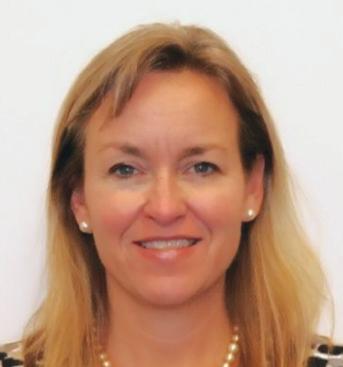
Julia White, senior adviser
Previously a partner at the Brooks, Pierce law firm in Raleigh where his practice focused on the intersection of law and public policy.

Former senior policy adviser at the N.C. Department of Justice. She oversees the policy,communications and budget areas for the governor.
Greensboro. We have the supply chain manufacturers making component parts for these batteries moving to the rural parts of our state. The front edge of the clean energy revolution will put money in the pockets of North Carolina families.
We’ve made significant accomplishments and are beginning to implement the largest infrastructure investment in a generation. We’re actually going to be able to connect every single household and every single business to high-speed internet, which is a necessity for business. I’ve already talked to small businesses that now have access to global markets that didn’t have it before. Farmers now are getting it. Medical providers are using it in their daily work, particularly in mental and behavioral health.
BNC: Will businesses stop coming if we don’t continue to improve education and infrastructure?
COOPER: I feel good about where we are in improving our infrastructure. I believe that we can meet the infrastructure needs of the growing state and that is an important part of this.
There are a couple of things that worry me. One is the legislature’s reckless decision to move the corporate tax to zero and to continue to reduce the income tax for the wealthiest. If you look out, that revenue is not going to be replaced, and we’re not going to be able to meet the needs of the growing state.
I’m not talking about raising taxes here. I’m against raising taxes. But what they need to do is stop (lowering them.) I don’t hear CEOs complaining about the 2.5% corporate tax rate in North Carolina. I do not hear them complaining about the income tax. What I hear them talk about is the need for a well-trained workforce. This is very shortsighted to shrink the government and get political gain here.
People are coming to this state because of the potential for growth. We’ve had a reverence for education for 150 years. We have the best array of public and private universities in the country, and we have the best community college system in the country. We have one of the most innovative early

Kristi Jones, chief of staff
Got her start in politics working as deputy political director for Democratic Gov. Jim Hunt’s successful 1996 campaign.

Stephen Bryant, deputy chief of staff He oversees intergovernmental issues, appointments, including boards and commissions and constituent services.

childhood investment programs in the country. We have good K-through-12 public schools at risk right now.
We have all of the ingredients to remain successful. But if we’re going to give $4 billion to private schools, that’s taxpayer money that is needed to educate. I’m not against private schools, but what I am against is using public money for private schools at the expense of public schools. And that is what is going to happen.
What we need to do is not be toward the bottom. No other state invests less of their gross state product in public education than North Carolina. That is where we are falling back. There are great things happening in our public schools. The one thing that Republicans and Democrats agree upon is that a great teacher in every classroom and a great principal in every school solves most of your problems of public education. And right now, teachers are underpaid and underappreciated.
It’s a money-making political movement that trashes public schools and pulls money out of public schools for unaccountable private schools. And I think that’s wrong on almost every level, and we are headed to real problems if we continue on this path.
BNC: Do you think business leaders are speaking up enough or sufficiently about the possible fallout from renewed cultural war?
COOPER: When you think about all the great things that have happened, it has been a strong push by North Carolina’s business community that has helped to get us there. When we talk about the investment in early childhood education, and Smart Start, the business community has been there.
The thing that I hear most about from them right now is concerns about the workforce. We’re creating all these jobs that are going to require so many skills. If there is anything that keeps me up at night, it’s will we have this great workforce for all of these jobs that have been created?
I think the business community needs collectively to raise their voices and say that instead of continuing to slash
these taxes, invest less in education, say that we really need more quality childcare. It is the triple play. It’s quality early childhood education for the child. It’s an ability to earn money for the parent, and it’s a member of the workforce for that business.
We do need the business community to use their muscle to make sure that the educational opportunities meet the demands of the workforce that’s going to be required today and tomorrow. I do believe the business community is going to have to make the workforce a priority with political leaders to make them understand how critical this is.
BNC: Anything you can tell us about conversations with Apple in the Research Triangle Park?
COOPER: We’re bullish on Apple. We’re really excited that they’re coming and building their East Coast campus here. They already have a lot of people in the MetLife building. They are excited about coming here and expanding.
It’s interesting how the pandemic has affected workforce decision-making by businesses. One day I met with the business leaders of Centene, and they told me they’re going to reduce their commercial office space nationwide and they’re not coming to that $550 million campus in Charlotte. They say their workforce has become more productive at home and that they would have a revolt if they brought them back to the office. So they make this business decision.
I’m scheduled with the Apple people the next day. Oh my gosh, they were just the opposite. They were like, “We’re going to collaborate. We’ve got to be in the same room. We’re going to build our campus in the Triangle. We’re going to change some of the things to make it more homey to make it more inviting, so that people will come to feel safe to be there.”
We’ve got to be ready for the different needs of businesses.
BNC: What’s your take on NC Innovation, which passed the legislature last year with a $500 million, two-year appropriation?
COOPER: I would rather invest in early childhood education. I have concerns about NC Innovation and whether they’re going to be able to invest in the right way. I want them to be successful. But there needs to be a lot of thought about taking taxpayer money and how we invest it in that way.
The fact that we’re the No. 1 state for business, the credit goes to North Carolina’s workforce. It goes to the people of the state because I think that’s the main reason why people come to North Carolina. We have an amazing team. There are a lot of things where we don’t choose to use incentives. If it’s not a big financial plus for the state, we’re not going to commit the state to it. But when it’s time for me to come in and do something, then I’m there doing it. I’m talking with their management team or their CEO.
Not long after I became governor, we were recruiting Toyota
for its automobile plant. I made a combat trip to Tokyo at the last minute to try to convince them that North Carolina was the place that they needed to be. And they ended up choosing Alabama. So we did something that they said that they had never seen before. We said, “Thank you, we really want you to come in for a debrief. We want you to tell us where our shortcomings are. We want you to tell us as much as you can, why you made this decision.”

What did they tell you?
COOPER: They said, “OK, you don’t have title to all of your megasite. We’re concerned about making sure that we’ve got the land. No. 2, you’ve got these power lines with Duke Energy, and I know you say they’ll move them, but we’re not quite sure that you can get it done in time because we want to start quickly.” So we continued our contacts with Toyota. I’ve talked several times to Chairman Akio Toyoda and now new CEO Koji Sato. I met with him in Tokyo when I went last time. They continued talking with us, and then they decided to come for the EV battery plant. We’d so much rather have this battery plant than a gas-powered automobile plant. This is a situation where a window closes and a big door opens. We listened, we learned, and we continued relationships with the company where we ended up with what’s going to be 5,100 jobs.
It’s the kind of thing you can do when you have a mind to create jobs. We know the private sector creates the jobs, but the government can act as a catalyst in that process. The legislature trusted our team to make good decisions. We talk to the leadership of the General Assembly, both Republicans and Democrats, about what we want to do. And 99% of the time we’ve been on the same page of where we need to invest and what we need to do. ■

Travelers are heading for urban counties, short-term rentals
The big news in leisure and corporate travel in North Carolina is, well, big.
With large metropolitan areas topping the destinations list, visitor spending rose 15.2% in 2022, reaching a record $33.3 billion, according to a N.C. Department of Commerce report released last August.
Leisure trips are the main influencer.
“From our perspective, leisure travel is back in North Carolina at record levels,” says Wit Tuttle, executive director at tourism and travel’s VisitNC. “Business travel still hasn’t returned to where it was pre-pandemic, but it is on its way. Meetings and events are doing great, but individual business trips have not returned fully yet.”
VisitNC reports visitor spending reached $91 million per day in 2022,
its latest figures, and direct tourism employment rose from 178,685 in 2020 to 216,890 that year.
Forty-five of the state’s 100 counties had double-digit increases in visitor spending. Eight of the top 10 –Cabarrus, Davidson, Durham, Forsyth, Guilford, Mecklenburg, Orange and Wake – are regarded as urban or regional city/suburban. Caswell and Granville, the other top 10 counties, are classified as rural.
“We know that more than half of our 30.6 million visitors are coming to visit friends and relatives, approximately 52%, which is no surprise when you look at population growth, corporate relocations and overall quality of life,” says Karen Brand, director of communications for the Charlotte Regional Visitors Authority.
In Buncombe County, where visitors spent $2.88 billion in 2022, Asheville and the mountains lure travelers seeking a blend of outdoor activities intermingled with restaurants, museums and the performing arts. “Destination storytelling has evolved over the years from focusing on what we have, to what you can do, to who we are as a community,” says Vic Isley, CEO of Explore Asheville. “More and more, we find visitors searching for places and spaces where they feel they belong and that align with their values. That translates into finding personal experiences to engage during shorter or extended periods of time – from a glassblowing class and a sound healing session to classes at UNC Asheville’s The Osher Lifelong Learning Institute or themed conferences and gatherings.”
Look for other North Carolina travel destinations, for both pleasure and business, throughout this section.
Tourism is the top industry on the coast, where the string of Outer Banks barrier islands stretches from the Virginia line 120 miles south to Ocracoke Island and draws 5 million visitors a year, according to the Outer Banks Chamber of Commerce. Dare County’s visitor economy generated $1.97 billion in spending in 2022, according to the Island Free Press, with 12,303 tourismrelated jobs equaling 45% of all county employment.
Overall numbers could go up. A Hilton.com article, “The 2024 Traveler,” notes that following COVID-19, “Sixtyfour percent of global travelers say they aim to reduce other areas of their personal spending to prioritize leisure travel in 2024. This is especially true for Gen Z and Millennials, who also plan to spend more on travel.”
Mecklenburg has the state’s largest number of employees in tourism-related roles, at 33,627, an 18% increase from 2021, and led all counties with $5.3 billion in travel expenditures in 2021, a 31% rise. Charlotte Douglas International






Airport counted 53.4 million passengers last year, a 12% jump from its 47.8 million in 2022, according to the airport. In 2020, leisure travel claimed 76% of Charlotte’s business, as business travel dropped to 17%. In 2022, business travel rose slightly to 22%.
“We know nine-in-10 visitors arrive via car to Charlotte, so we are very much a drive market that visitors seek out for a sophisticated urban getaway,” Brand says. “We also know we have a tremendous asset in Charlotte Douglas International Airport, which serves as a vital Southeastern hub, but also recognize that more than 80% of those travelers are connecting and not staying in-market. Because of these reasons, we knew expanding our geographic reach to new markets in a 400-mile drivable radius would be the next step in our marketing efforts.”


The N.C. Department of Transportation’s “NC Moves 2050 Plan” explores the state’s transportation vision as it relates to the tourism industry. The report, initiated in 2018, says: “Recently, travel and tourism has received recognition within the federal transportation planning process. Considering tourism in transportation investment decisions can impact economic growth and overall project development.”
An accompanying map shows N.C. sites across the state and whether they’re accessible by plane (airports in Asheville, Charlotte, Greensboro, Raleigh, Wilmington), train (Charlotte, Gastonia, Greensboro-High Point, Raleigh-Durham-Cary, Greenville) and ferry (coastal attractions in Fort Fisher, Pine Knoll Shores, Kill Devil Hills and along the Outer Banks).
“Probably the biggest change we’re seeing post-COVID is that short-term rentals have become a huge force in the industry,” Tuttle says. “They’ve always been important in the mountains and on the coast, but they have grown acrossthe-board as many people experienced them for the first time during COVID. And it doesn’t look like they are slowing down.”
Twiddy & Co., a family owned, Outer Banks vacation rental company in Corolla, in Currituck County, says its mission “is to provide superb property management to our homeowners and an exceptional Outer Banks vacation experience to our guests.”
The 2024 Milken Institute BestPerforming Cities Index released in February ranked the Charlotte-ConcordGastonia metropolitan area as 10th nationally, a jump from 20th in 2023. The report noted that “This year’s topperforming cities had several common themes: a vigorous and growing high-tech sector, rebounding leisure and hospitality sectors and community resilience.”
In its description of Charlotte, the report states: “Recovery of the hospitality industry has been a major theme of the top-performing cities over the past two years, with many high-performing metro areas benefiting from the rebound of tourism. However, growth in Charlotte has been well-balanced, with the metro area experiencing five-year job growth and wage growth in many segments of its economy.”
It notes that the state’s growing tourism industry is “inherently dependent on the state’s multimodal transportation system, which delivers visitors to destinations across the state. Providing a vision for future transportation that is inclusive of tourism can foster unified policies and objectives that best serve the needs of the state.”
One topic in which the DOT can work with local tourism offices, officials say, is the construction of EV charging stations.
“On average about 85 to 90% of our visitors are traveling to and within the state for leisure purposes, and the majority of them drive to the state,” says Marlise Taylor, VisitNC’s director of tourism research. “Recent research tells us that travelers interested in North Carolina find unique identity and sense of place important when choosing a destination. Beautiful scenery continues to be the most influential vacation motivator for these travelers.”
“Twiddy & Co. currently represents over 1,100 private homeowners and welcomes hundreds of thousands of guests annually to the Outer Banks,” says President Clark Twiddy. “For some context, that is about 7,200 bedrooms –nearly as many hotel rooms in Asheville and just under half as many as Greater Raleigh, to put that into perspective. Those are data points, though. More importantly, we have learned over almost a half-century in business that the best way to deliver an experience is one person, detail by detail, over time. Those numbers are all outcomes of individual trust built over time.”
Using AI data-driven information is helping the company with decisions such as pricing strategies for homeowners, mapping how homes have performed in past years and follow-ups with potential guests who may have initiated a reservation but not completed it.
“We’ve found a hybrid approach to work well for us, as it automates certain aspects of our business while maintaining the human element,” Twiddy says. “For example, our AI-powered chatbot helps answer common guest questions,
while freeing up our customer service team to focus more on strengthening relationships with guests and owners. We call that combination ‘digitizing Southern hospitality,’ and by leveraging the power of machine learning that would, in many cases, take days or weeks to sort through data, we are able to make quicker decisions based on data-driven insights.
“Above all, though, we have two charges: Be critical consumers of data on behalf of clients, and to make AI a complement, rather than a competitor, of our team’s own effort.”
Explore Asheville, the Buncombe County Tourism Development Authority, reports visitor spending exceeded 2021 in every category. Of that, $902 million was spent on lodging, according to its fiscal year 2023 annual report. The report notes that “Hotel room night demand grew 7.5% from 2019 to the end of 2022. Vacation rental room night demand grew 62% during the same period.” In 2019, the Asheville City Council passed a
hotel moratorium that paused new hotel development for two years, “driving visitor demand into housing stock,” Isley says.
However, Buncombe County’s tourism authority reports a shift for 2023, with hotels declining by 1.9% and short-terms rising by 3.5%.
“Changes in travel behaviors due to the COVID pandemic further impacted that trend,” she says, “as visitors opted for accommodations that allowed them to spread out and occupy their own space, and smaller corporate and executive retreats as well as social-milestone gatherings opted for more intimate settings. Vacation rental growth has continued through 2023.”
Taylor adds: “While most overnight visitors stay in hotels/motels while in the state, vacation rentals continue to be a very popular choice for lodging. These properties continue to have large increases in supply as well. We are seeing a shorter booking window, both in North Carolina and nationwide, so while that can be
frustrating for individual properties, it opens up more opportunities to continue to get in front of potential travelers.”
“Behind visiting friends and relatives as a visitation driver, people are coming to experience timely things to do,” Brand says. “Whether those are sporting events, festivals, concerts or performances, not to mention mainstays like the thriving culinary and brewery scene, we strive to tap into those seasonal and timely things to do within our marketing efforts to reflect the four-season destination Charlotte has become.”
Tourism growth was not limited to just big cities, the mountains or the coast. Caswell County’s population is about 23,000, yet it ranked in the top 10 for percentage increase in visitor spending in 2022. Its website promotes “the peaceful tranquility of our rolling hills and rural nature while still being within an hour’s




Sanford, NC surprises and delights visitors with a unique blend of fascinating experiences seldom heard of in a small-town setting. Once you get a taste of our arts and music scene, restaurants, natural scenery, outdoor recreation, and more, you’ll see why Sanford is the destination for business and leisure travel.
Wendy Bryan | 919-718-4659 Ext 1407 VisitSanford.com | info@visitsanfordnc.com




Visit Winston-Salem is the official sales and marketing organization responsible for marketing greater Winston-Salem as a premier tourism destination for the economic benefit of the community. Visit Winston-Salem is responsible for developing and implementing strategic destination campaigns to increase leisure visitation, conventions, and sporting events in Winston-Salem.
200 Brookstown Avenue | Winston-Salem 336-728-4200 | visitwinstonsalem.com
drive to the bustling cities of Raleigh, Durham and Greensboro.”
The county promotes its many neighborhood parks and historical sites, along with Hyco Lake for boating, swimming and water skiing, and S.R. Farmer Lake, favored by bass anglers.
The nation’s oldest Black community center, the YMI Cultural Center, is also slated to reopen from renovations this year. Located downtown, the historic auditorium and event space will be available for private bookings.”
Climatic Data Center, the world’s largest archive of climate and weather data, maintained by the National Oceanic and Atmospheric Administration.”

Visitor spending in Caswell reached $18.42 million in 2022, according to the Department of Commerce.

The Buncombe area is promoting a cultural emersion experience for 2024, the Asheville Black Cultural Heritage Trail. “The trail passes by several Black-owned businesses, including Noir Collective, an art gallery and boutique, and Grind AVL, a coffee shop and community space,” Isley says.

As business travel and conventions slowly reappear, the west is ready. Isley sees large groups showing more concern about their impact on the destination site.
The Charlotte Convention Center recently completed a $126.9 million expansion “to enhance the attendee experience and strengthen Charlotte’s competitiveness in the nearly $300 billion meetings and convention industry,” according to a release.
“Visitors and groups can explore the trail to learn how Black people from all backgrounds built resilient communities and fostered social change in Asheville.
“While leisure travel makes up the lion’s share of visitation to Asheville, meetings and conferences are a vital part of our strategy to encourage sustainable growth throughout the year,” she says. “Another trend in the corporate meetings space is an emphasis on intentional planning that centers on sustainability. Attendees care deeply about the impact their gatherings have on the environment and the community. Asheville is quickly becoming the world’s hub for climate science – it’s home to the National
Construction included an exterior overstreet pedestrian walkway connection to the Westin Charlotte and LYNX Blue Line light rail, and a new interior wing to add 50,000 square feet of meeting space.
“We actively seek to recruit the right size business at the right time for the Convention Center and our hotel partners, and corporate groups are an important segment of that overall meetings mix,” Brand says. “This fiscal year, we are investing in 15 additional trade shows to focus primarily on new opportunities to generate short-term






A 78-acre resort within walking distance of the quaint mountain village of Blowing Rock and adjacent to a 3500-acre National Park nestled within the Blue Ridge Mountains of Western North Carolina. Chetola Resort offers a great selection of accommodations. Choose from our 42-room lodge overlooking the lake and Chetola grounds; the historic Bob Timberlake Inn, featuring furnishings by artist Bob Timberlake; and our spacious condominiums with a range of amenities and views.
185 Chetola Lake Drive | Blowing Rock 828-295-5500 | chetola.com







Asheville is surrounded by the spectacular natural beauty of the Blue Ridge Mountains and has been defined by its creative spirit and rugged independence. It’s a place that supports homegrown brands, attracts purpose-driven companies, and offers a creative community prime for group gatherings.
Meetings@ExploreAsheville.com AshevilleMeetings.com
bookings and one-hotel pieces of business, with an emphasis on corporate. We also have established strong relationships with third party meeting planners who typically have a lot of corporate leads that they pass along to us on behalf of their clients.”
Part of that recruiting is advertisementbased. “For every $1 we spend in paid advertising, a visitor spends $71 in the community,” Brand says. “Our sales and marketing efforts on the group side also play a role in driving visitor spending. Meeting planners select host cities based on a variety of factors, and of course, selecting a location that is exciting to attendees and will draw strong registration is an important part of the equation.”
The west continuously promotes leisure adventures such as hiking, kayaking, state parks and arts venues, and lists several hundred short-term rentals throughout. New, themed hotels are appearing.
“New lodging options are opening around Asheville,” Isley says, “from intimate boutique spaces in historic buildings like The Blind Tiger Asheville, The Radical Hotel, Zelda Dearest and soon to open Flat Iron Hotel, to modern properties with communal meeting areas, spacious suites and elevated F&B concepts, such as The Restoration Hotel and Embassy Suites Downtown Asheville with a 4,700-square-foot ballroom.”
On the ocean, visitors primarily seek family time, with water activities, shopping, Jockey’s Ridge State Park, five lighthouses and wild horses. “The great majority of our larger groups tend to be extended family,” says Twiddy, whose company’s accommodations extend through Corolla, Duck, Southern Shores, Kill Devil Hills and Nags Head.
Meanwhile, the Charlotte area is already planning for a major visitor impact three years away.
“Our ability to successfully host large, strategic events has earned national and

“If you haven’t been to Charlotte in the past three to four years, you haven’t been to Charlotte! The Queen City is one of the fastest-growing cities in the nation. While the region continues to grow, we remain true to who we are as a destination: Welcoming, inclusive, and full of southern hospitality.”
- Karen Brand
international recognition,” Brand says.“In 2027, Charlotte will host the American Society of Association Executives Annual Meeting & Exposition, considered to be the ‘Super Bowl of meetings.’”■
— Kathy Blake is a writer from eastern North Carolina.



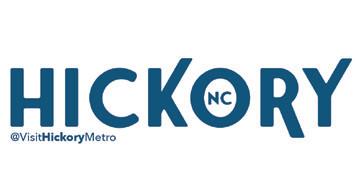
Hickory’s uniquely local vibe of craftsmanship and connectedness is what makes it a welcoming place for residents and visitors alike. In Hickory, the good life isn’t just about having a lot to do –it’s about how to experience it. Hickory has transformed with a renovated downtown, new City Walk & River Walk, growing culinary scene, and outdoor adventures for every age.
1960 13th Avenue Dr. SE | Hickory, NC 28602 828-333-1335 | visithickorymetro.com



A fast-growing niche market, agritourism is credited with propping up struggling farms and connecting farmers to their communities
After a spring frost took every burgeoning peach in early 2023, Ramseur farmer Beverly Mooney is fervently hoping Mother Nature will be kinder this year.
“We had a warm spell in late January and our peaches started blooming,” she says. “But the end of February brought a hard freeze, and we lost 100% of our crop.”
The freeze also cost the 84-acre Randolph County farm other varieties of fruits and berries.
“It was truly a catastrophic year as far as food production went,” she says. “Thank goodness for agritourism.”
Mooney is a second-generation
farmer whose father started Millstone Creek Orchards as a retirement job. For the past 20 years, she has invited the public to visit, pick produce and enjoy the events the farm has to offer. In addition to peaches, Mooney grows a variety of berries, grapes, apples, pumpkins, pecans and fresh flowers.
“I have a little store, a bakery and a small cannery,” she says. “I also have a cider mill and produce my own apple cider.”
Mooney’s cider mill is one of just a few operating in North Carolina. She produces 300 to 400 gallons of apple cider a week from September until Christmas, selling it fresh. In the winter,



she freezes a batch to concoct cider slushies during the summer.
Admitting she is not a natural-born farmer, Mooney says her role included managing the public-facing aspects of her family’s farm business, organizing special events and working in the farm store. She enjoyed working alongside her father, but he died in 2015, leaving her at a crossroads.
“I didn’t even know how to start a tractor,” she says. “Agritourism saved my farm.”
Mooney eventually became a proficient farmer but still depends on agritourism to prop up her business.
BY
When it comes to depending on agritourism, experts say Mooney is not alone.
The latest statistics date back to before the COVID-19 pandemic, but according to N.C. State Extension, in 2020, more than 1,000 farms offered agritourism activities in the state.
Further, the U.S. Department of Agriculture reports farm agritourism revenue in North Carolina grew from $704 million in 2012 to almost $950 million in 2017, showing how much the public appreciates local food and enjoys outdoor experiences.
North Carolina statutes define agritourism as “any activity carried out on a farm or ranch that allows members of the general public, for recreational, entertainment, or educational purposes, to view or enjoy rural activities, including farming, ranching, historic, cultural, harvest-your-own activities, hunting, fishing, equestrian activities, or natural activities and attractions.”
In a video produced by N.C. State University for its Women in Agritourism project, Carla Barbieri, an NC State professor of parks, recreation, and tourism management, says there are two criteria for a commercial operation to be considered agritourism.
“It must take place on a true working farm operation,” she says. “And it must also offer educational or recreational activities.”
The N.C. Department of Agriculture & Consumer Services launched its Visit NC Farms app in 2018 as a pilot program which has expanded statewide to connect millions of residents and visitors with local farms, food and drink, farmers markets and pick-your-own produce venues and other special agriculture-related places and events.



On an unseasonably warm January morning at Spring Haven Farm, Cullen Crihfield is preparing for Valentine’s Day, one of the most popular days of the year for his family’s 10-acre farm, located just off I-40 in Chapel Hill. The farm offers visitors an opportunity to pet and play with goats, pigs, rabbits and assorted chickens.
“For Valentine’s we are planning to decorate the farm with hearts, and create spots for people to take pictures,” he says. “And we put cute outfits on all the baby goats.”
Crihfield’s father, Andrew Crihfield, bought the farm in 2002 and started growing organic vegetables.
“We planted about two-and-ahalf acres, and it was fun, but growing and selling organic vegetables wasn’t making enough money to support the farm and our animals,” Crihfield says.
Then the Crihfields spotted an ad for goat yoga at another farm. It sparked an idea. They contacted a local yoga instructor who got on board



and planned an event to see if anyone would show up.
“She posted it on her website, and it sold out in less than two hours, and that introduced us to agritourism,” Crihfield says.
Spring Haven Farm has become a popular destination for families of all ages. On its busiest days, the farm sees as many as 600 people, including students on field trips, Crihfield says.
“We’re trying to improve our field trips by creating better educational programs for school kids when they come out here,” he says.
For Crihfield, being part of the local community is the most valuable aspect of running the business.
“It’s about getting people out to see what makes us special,” he says.
Agritourism builds a sense of community in a business sector where proprietors learn to lean on each other and their neighbors for support.
Mooney, who is on the board of
directors of the 300-member N.C. Agritourism Networking Association, says agritourism farms form their own tight-knit community and help each other when the going gets tough.
She turned to sunflowers when she learned the significance of her crop damage last year, even though she had never grown a single bloom.
“I ordered 7,000 sunflower seeds, and through the Agritourism Networking Association, I connected with a flower farmer in Kernersville,” she says. “She came down, mentored me and showed me how to grow sunflowers.”
Lee Rankin, president of the Agritourism Networking Association, believes inviting the public to local farms helps build valuable connections and knits her business to her community.
“Agritourism links people to farms by giving them unforgettable experiences and helping them understand where their food and products come from,” she says.
Two decades ago, as a single mom, Rankin bought a 43-acre abandoned apple orchard on a mountaintop in

Watauga County and created Apple Hill Farm, a fiber farm where she raises angora goats, alpacas and llamas for knitting yarn.
“Our original intention was to breed, sell and show alpacas,” Rankin says. “However, when people began to come by and ask to see the farm, we would spend hours showing them around and sharing our story. That prompted us to venture into agritourism.”
Today, Apple Hill Farm hosts a variety of events throughout the year, including public and private tours, barn quilt painting classes, knitting alongside alpacas and more. In addition to hosting events on-site at the farm, she also travels to craft shows showcasing her fiber products and runs an agritourism consultancy.
Rankin also believes small farm ownership is perfectly suited to offering opportunities for adventurous entrepreneurs eager to create a family business.
“I have seen farms that have started with one or two people who decide to start an agritourism business,” she says. “And then their kids start coming home to help out.”
Agritourism is also a way for nonfarmers to be part of the land and introduce future generations to farming.
“Not everybody wants to farm the land, but there may be some family members that would love to manage a farm store, and others who are interested in creating educational programs,” she says.
That concept appealed to Courtney Sharp, a teacher who found her niche at Deans Farm in Wilson. Her family decided to take over when the original farm owners decided to retire. They left behind a farm market that has been operating since 1965 and fields that grow a variety of crops including strawberries, watermelon, lettuce, corn, peas, tomatoes and butterbeans.
“My husband James is from a farm

family, so they asked him if he would be interested in taking over their farm, and that’s how it all began,” Sharp says. “I have a master’s degree in special education, so it took a while for me to come on board.”
She found her passion in agritourism by expanding the existing Deans Farm Market into a full-fledged business, which has been great for the Sharps’ family, the community and for local tourism in Wilson County.
Since taking over the farm, the Sharps have added hayrides, summer camps, vendor markets and Christmas activities.
A few years ago, the Sharps added a commercial kitchen and a team of chefs who create complete meals-to-go from produce grown on the farm.
Sharp has also found a way to incorporate her education and teaching skills to bring the classroom to the farm, benefiting teachers and students alike.
“Each season we have an indoor





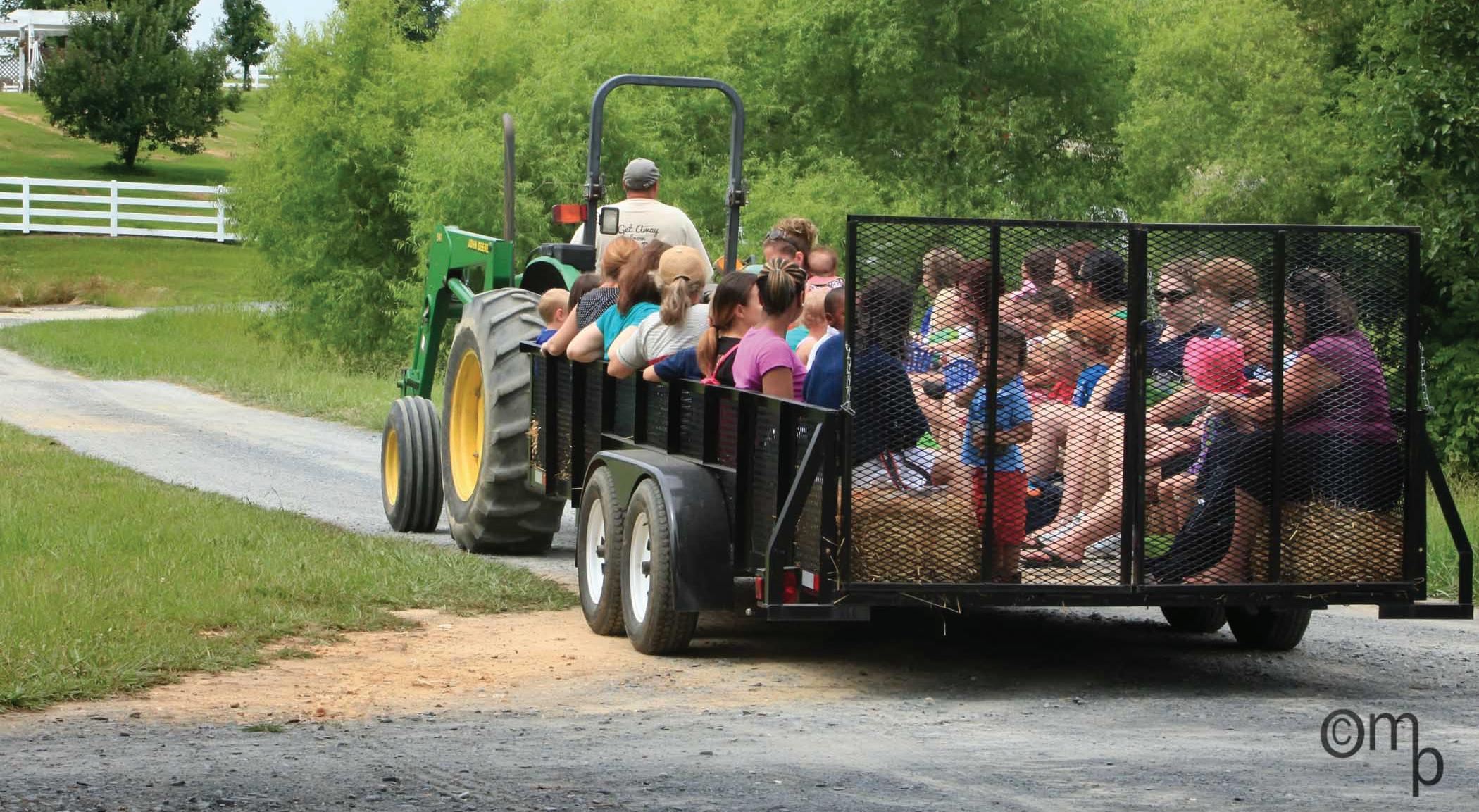






agriculture classroom where kids can learn about what we grow, and how we grow it,” she says. “We offer activities and lessons linking to their science curriculum, and we choose books to base their lessons on.”
Apple Hill Farms owner Rankin says not only does agritourism benefit children and adults alike, it supports farm operations, and brings people in.
“Now is a fascinating time to be a farmer and to be in the world of agritourism because the culture is ever changing,” she said.
Rankin, a first-generation farmer who moved to the North Carolina mountains to start an alpaca farm, has written a book about her experiences titled “Farm Family: A Solo Mom’s Memoir of Finding Home, Happiness, and Alpacas.”
“I was a single mom with a 2-yearold, and I didn’t know anybody,” she says. ”And when I look back, I always ask myself, ‘oh my gosh, what was I thinking?”■
— Teri Saylor is a freelance writer from Raleigh.






North Carolina A&T University Professor Osei Yeboah leads the university’s International Trade Center, which introduces graduate students to foreign trade.




North Carolina is ranked 14th in the country for agricultural exports
Statesville’s Southern Distilling made news last month as North Carolina’s 2024 Exporter of the Year. N.C., announced during the 19th Annual Agricultural Development Forum.
The distillery has plans to expand its portfolio globally, distillery co-founder Vienna Barger said in a press release after accepting the award at the event hosted by the N.C. Department of Agriculture and Consumer Services.
Spirits are among North Carolina products on the rise across global markets, particularly in Europe, says Cathy Ma, assistant director of international marketing at the North Carolina agency. Southern Distillery worked closely with Ma and her team to create export opportunities. “We’ve been on trade missions to Germany, and you can see that’s paying off,” she says.
After participating in North Carolina and Tennessee Spirits Week in Berlin in 2023, Southern Distillery began exporting three Southern Star whiskeys to Germany, its first step in a global market. According to the Distilled Spirits Council of the United States, U.S. spirits exports
totaled $2.06 billion in 2022, a 30% increase over the previous year.
The U.S. Global Leadership Coalition has called North Carolina a “major player” in the world’s economy. The USDA estimates that the state ranks 14th nationally in agricultural exports. Its five top global commodities — pork, broiler meat, tobacco, soybeans and other plant products — are valued at nearly $4.5 billion.
In addition to these traditional products and distilled spirits, sweet potatoes and cotton seeds are gaining traction. The N.C. Agriculture Department estimates that North Carolina exported more than $150 million in sweet potatoes in 2020. Cotton seeds demand is also increasing, both for human consumption and animal feed, says Ma.
“Cotton seeds are a rising star,” she says. “I took three local growers to South Korea and Japan on a trade mission last summer, where buyers were keenly interested in our soybeans and cotton seed.”
Minnesota-based Northwest Grains International installed a transload
facility at the inland port of Dillon, South Carolina, and added cotton seeds along with soybeans to its inventory, Ma says. The cotton seeds, sourced from farms along the North Carolina-South Carolina border, travel to Asia by way of the Port of Charleston. South Korea is a top importer of the seeds.
North Carolina benefits as an ag exporter because of its favorable business climate, a long growing season, quality products, and its proximity to ports. The ever-expanding Port of Wilmington is a strong partner with North Carolina’s global trade.
“The port has grown so much and by introducing traders to our office, they help us connect the growers with the importers to get products moving,” Ma says.
She points to Omaha, Nebraskabased Scoular, a global trading company that established a transloading facility at the Port of Wilmington in 2021. That helped open new Asian business for North Carolina soybean producers.
The state is also taking advantage of the Regional Agricultural Promotion


Program, a $1.2 billion program that makes grants available for expanding U.S. goods into emerging markets including Africa, Latin America and Southeast Asia.
For small producers interested in exporting, Ma says the first stop is at the N.C. Department of Agriculture, where they can learn about potential markets and best sales strategies.
“Learning about their business and their products will help determine their ideal markets,” she says.
It’s also a good time for young professionals interested in entering the export industry. North Carolina A&T University oversees the L.C. Cooper International Trade Center, established by the U.S. Department of Agriculture to expose graduate students to issues related to foreign trade. Professor Osei Yeboah leads the program, which was established in 2003 and is part of the College of Agriculture and
Environmental Sciences.
“We expose students to global trade, international agribusiness, and marketing,” he says. “We also conduct research on international trade theory, policy, free trade agreements, and we do outreach.”
The center is working with nine agribusiness students pursuing master’s degrees in international trade and business marketing. The federal agency is constantly seeking ag school graduates to work in overseas markets, he adds.
Yeboah recently returned from Ghana, where he is working in international development, focusing on global food security. Food insecurity remains a major problem in west-central Africa.
“It puts a strain on the U.S. government if these countries are not able to produce and feed themselves, because it leads to starvation, wars and other problems,” he says.
A significant portion of United States commodities end up overseas. “Without international trade in this country, some producers would not have a market,” he says. “International trade helps rural communities increase jobs, income, and other benefits, because if they produce food and don’t have a market to sell into, they may not survive economically.”
In 2022, Yeboah received three years of funding to work with ranchers and novice farmers in North Carolina. He assembled a team of professors, animal scientists and engineers to help farmers create irrigation systems.
He also works with individual farmers, including a producer who needs help forming a cooperative to help local farmers produce in bulk.
“For any farmers needing assistance, we will be there for them.” ■
— Teri Saylor is a freelance writer from Raleigh.






BY DAVID MILDENBERG
Build it and they will come” is more than a slogan for seven low-wealth counties in North Carolina. The state budget included $10 million to jumpstart the process of adding buildings in those counties that would be available for new or expanding businesses. Normally, developers work with companies to establish a structure for manufacturing or distribution that is privately owned.
Under the state’s new program, counties are incentivized to add publicly owned structures ahead of commitments by businesses. State lawmakers authorized the Rocky Mount-based Golden Leaf Foundation to administer the program as part of the 2023-24 state budget. It should “increase the number of available, publicly owned industrial buildings suitable for new or expanding businesses, other than retail, entertainment or sports projects,” according to a foundation release.
“This will give those counties some space to market to new companies and create new jobs,” says Steve Yost, president of North Carolina’s Southeast economic development group, which promotes about 20 counties. Four of the seven countries – Bladen, Columbus, Robeson and Scotland – in the program are in Yost’s region. The other three are Franklin and Halifax in northeast North Carolina and Ashe in western North Carolina.



“Our four of the seven counties in the program are Tier 1 economically distressed counties, and they have very little available industrial space that is marketable to advanced industry,” Yost says. “There are older buildings out there, but they don’t tend to be conducive to modern manufacturing.”
Having so-called “shell buildings” is an advantage that helps avert delays related to zoning, construction and inspection issues, says Loren Hill, regional economic development director for the Carolina Core group based in Greensboro. “Most clients are on a very fast timeline, and having a building already up saves months of time and thus also money – for a company looking to become operational as soon as possible.”
How the seven counties were selected by lawmakers is unclear, though the assumption is that political influence at the legislature was vital. There are 40 counties classified as Tier 1 under N.C. Commerce Department rules.
It’s the first time the Golden Leaf Foundation has been involved in a shell-building program. The foundation has assets of about $1.3 billion, providing combined grants ranging from about $40 million to $70 million annually. It isn’t obligated to put up its own money for the program.
The foundation was established in 1999 with funding from the Master Settlement Agreement with cigarette manufacturers that wanted to avoid further litigation over public health concerns. While its main mission is

aiding distressed rural areas of the state that historically relied on the tobacco industry, its scope in economic development has broadened in recent years.
In early February, the foundation approved $360,500 from the state funds for eight projects in the program. An example is $50,000 to Robeson County to develop plans for a 140,000-square-foot building at the COMtech Business Park, which is about halfway between Lumberton and Pembroke. The county expects it can attract a business that may invest $9.2 million and add 75 jobs with average salaries of $45,000.
“There’s solid data behind those projections,” says Yost. His organization worked with the counties to analyze some of the applications approved by Golden Leaf.
How will anyone know if this program is effective? “The only measure is to see a company in the building that has generated private investment, economic impact and some new job creation,” Yost says. ■


Project plans approved by the Golden Leaf Foundation in February 2024

$50,000 for a 30,000-square-foot building. Potential $3 million investment for 30 jobs, $40,000 average salary.



Ashe County Bladen County Columbus County Franklin County
$50,000 for a 30,000-square-foot building. Potential $2.5 million investment for 40 jobs, $50,000 average salary.

$50,000 for a 50,000-square-foot building. Potential $30 million investment for 100 jobs, $40,000 average salary.
$50,000 for a 60,000-square-foot building. Potential $10 million investment for 55 jobs, $45,760 average salary.

$27,000 for a 40,000-square-foot building. Potential $10 million investment for 100 jobs, $47.000 average salary.


$50,000 for a 140,000-square-foot building. Potential $9 million investment for 75 jobs, $45,000 average salary.



Halifax County Robeson County Scotland County Town of Tabor City
$50,000 for a 25,000-square-foot building. Potential $1.5 million investment for 25 jobs, $42,000 average salary.


$43,500 for a 24,000-square-foot building. Potential $750,000 investment for 20 jobs, $40,000 average salary.





